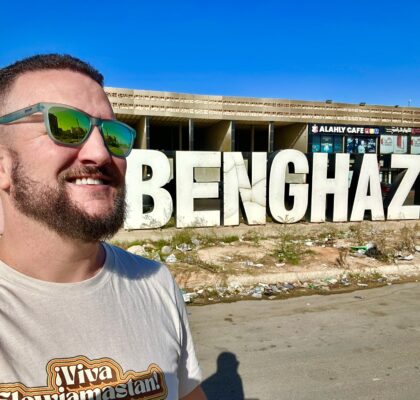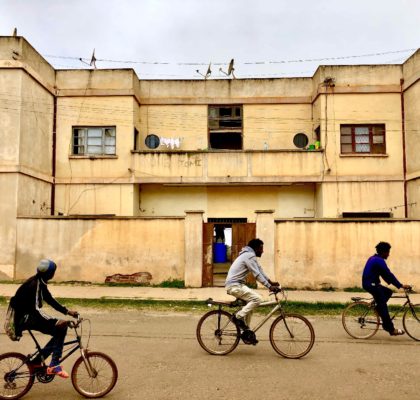Welcome to Liberia
I wasn’t too excited about an overnight flight into my 157th country, but if you thought routes and schedules were bad in normal times, traveling West Africa during the pandemic–on a tight schedule–is nearly impossible. It’s amazing how small and close all these little nations are to each other, yet how difficult getting between them can be – there are very few direct flights between the capitals. In the case of this December 2020 trip, I’d have to keep returning up north to Casablanca–three to four hours in flight time–just to catch flights back down to my next destinations, that were right next door to each other. Imagine if you were in Los Angeles, but had to fly all the way to Miami just to get to Las Vegas! And then back to Miami again to connect back to Phoenix. Overland trips? Oh yeah, I have a couple of those scheduled too. You’ll be able to watch the calamity unfold when I publish my Guinea Bissau and Sierra Leone blogs. Spoiler alert: dirt roads with huge pits and holes. Just know I spent months putting this crazy schedule together, and the routes may not make sense (they look absolutely absurd, really), but they were literally the only options. I’d wrap up (or at least attempt to) the remaining countries of West Africa on this go-around, my fifth or sixth time on the continent – I’ve lost count! There are a whopping 54 counties in Africa, and a cluster of 16 of them, all packed into what we refer to as West Africa. And the countries that I’d be attempting to see on this trip, would probably all fit into Southern California – such a small area in size for so many nations, but horrible roads and poor flight schedules make it obscenely difficult to travel quickly or efficiently between most of them.
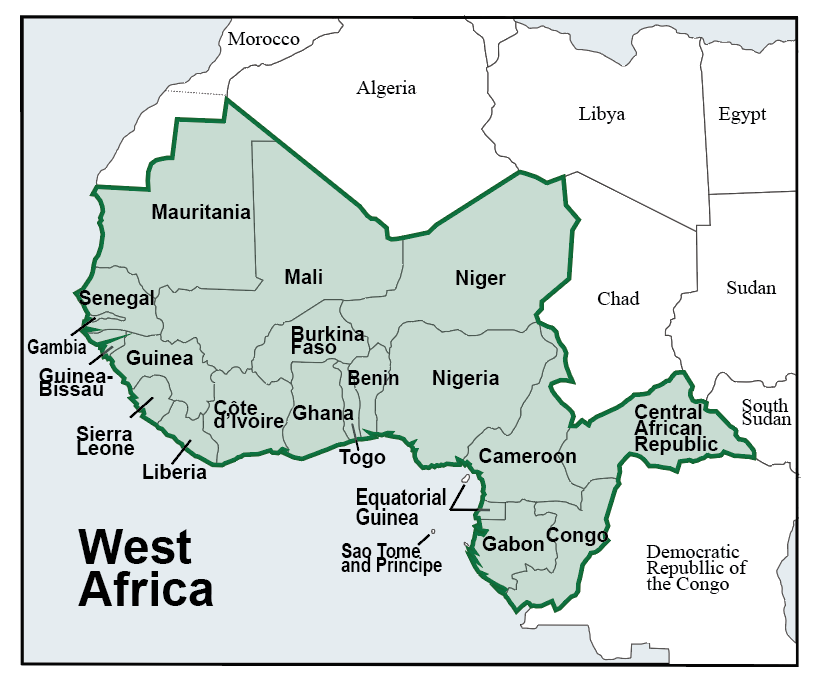
Besides the challenging transportation, each country has its own rules for entry. Most countries require a Corona test no older than two or three days. Liberia was different: No test required on arrival, but you were made to take one at the airport, immediately after you landed. So here I was at 5AM, swirling a Q-Tip around the inside of my nostrils. When it was all said and done, it was around 5:30AM and I was heading down a dark, two-lane road on the way to Monrovia, which was about a 40-minute drive away. I loath airports that aren’t close to the city. When I finally arrived at the Mamba Point Hotel, I had breakfast and then crashed out. I hated to waste so much of the day, but I don’t do well without sleep and hadn’t caught any good Zs since I’d left the US three days ago. It was an investment.
RAMBLIN’ TIP: Africa is one place you don’t wanna pinch pennies when it comes to accommodations. If you don’t do it anywhere else but here, trust me: Spend the extra dough to get the nice hotel. It’s a whole different ratings scale here and if you try to go to a budget hotel, you may regret it. You can (and should) book the Mamba Point Hotel HERE.
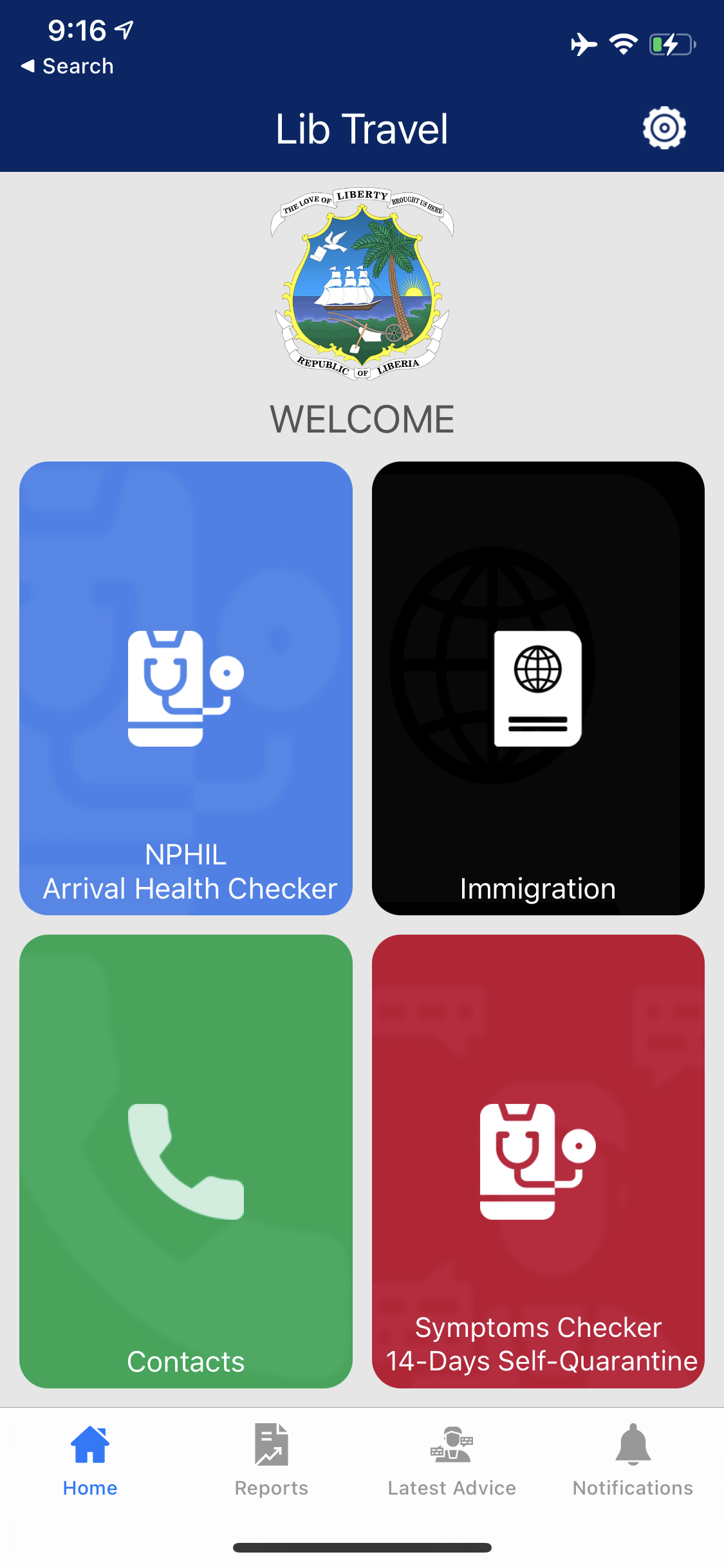
Afternoon Delight
I finally strolled out onto the street by 4PM. I figured it was too late to tackle any “to-do” or “to-see” list, so I I’d just get acquainted with the neighborhood; walk around the block. I hung a right on UN Drive, passing numerous embassies, including the American. It was good to know if I needed help they were in earshot. Over a hill and a few minutes later, the traffic and people seemed to pick up, almost instantly. I’d soon walk smack dab into Waterfront Market. If you’re a regular reader of my blog (thank you!), you know that markets are my thing. I love them! Where else do you see so many people, going about their everyday life: commerce, commotion, chickens, produce, grains, spices, music, yelling…just everything! It’s such a great way to just get soaked into a city’s culture head first, all at once. I’m such a sucker for a great market, and this one was enormous…even a little overwhelming. There wasn’t much rhyme or reason, it was just the street, filled with stuff! No organization, no aisles, no stalls lined up in a row – just what seemed like millions of multi-colored umbrellas on the road, with tables and stands underneath; many vendors’ products just piled on the ground. I could’ve stayed there all day, but I was a little afraid of catching the Corona. I was amazed that nearly no one at the market wore a mask – literally, almost no one! I’d read somewhere that Corona had already passed through West Africa quickly, and that herd immunity was in affect. Makes sense, but I wasn’t sure, so I didn’t hang too long, though I would’ve loved to.
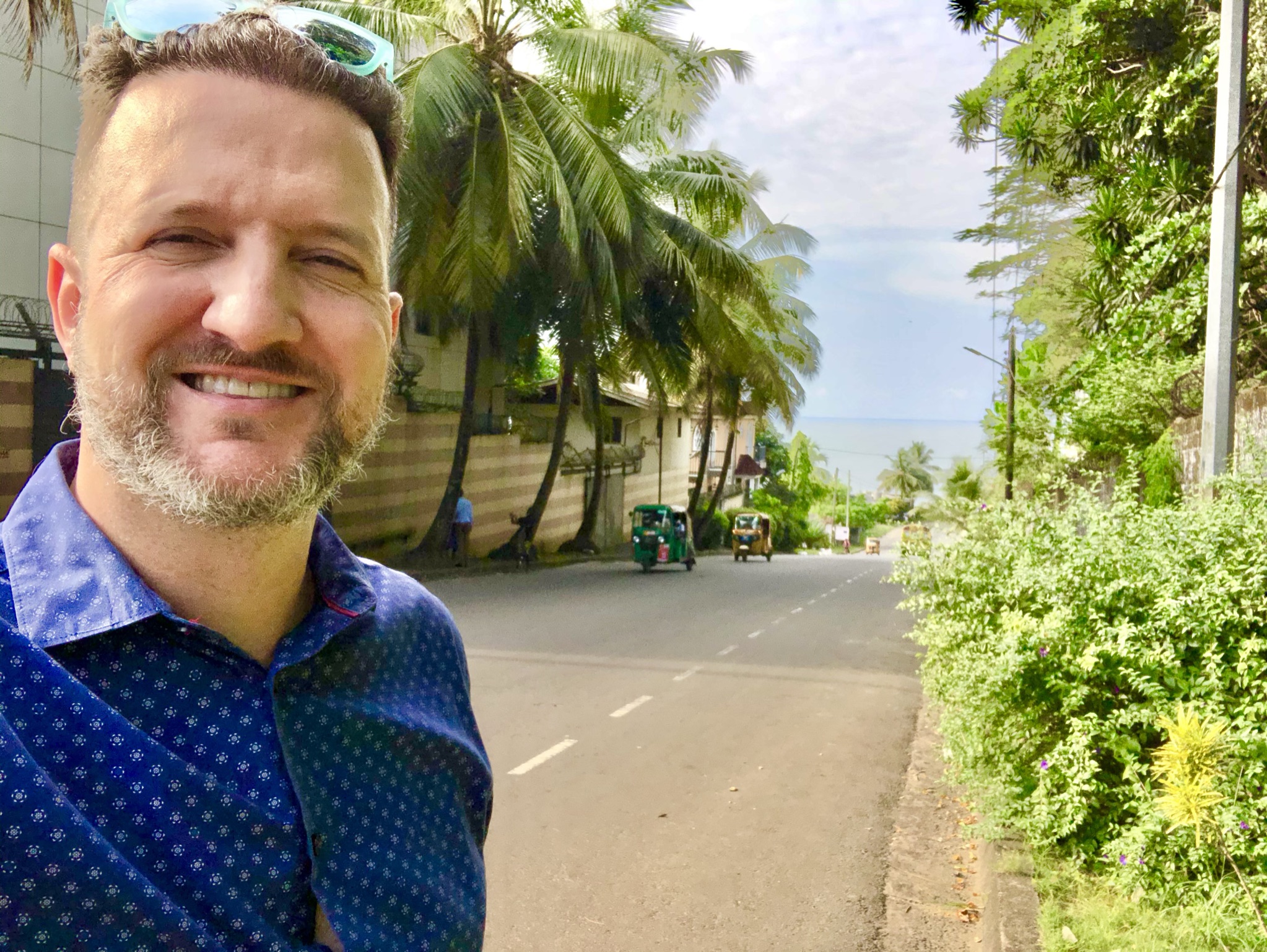
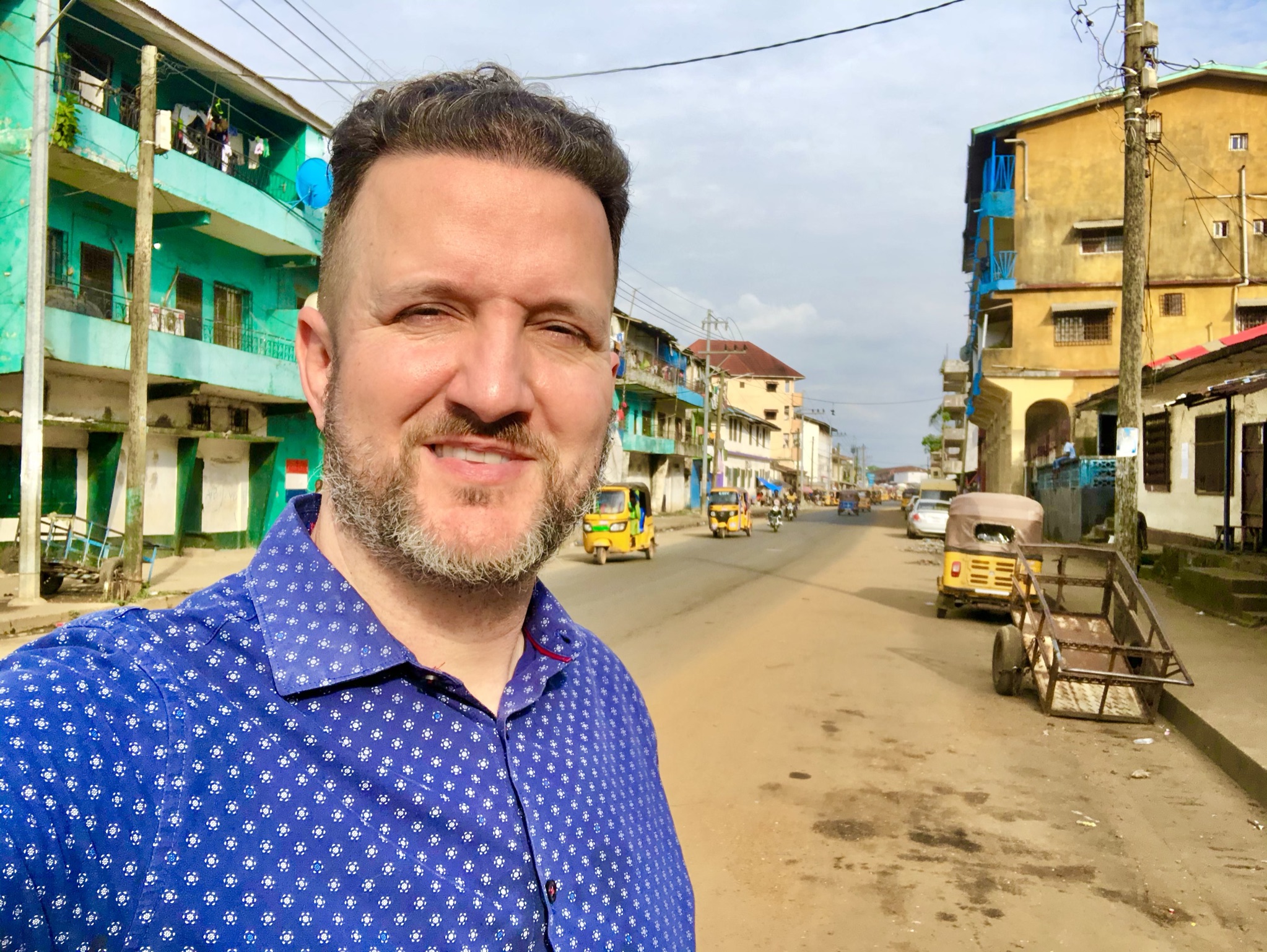
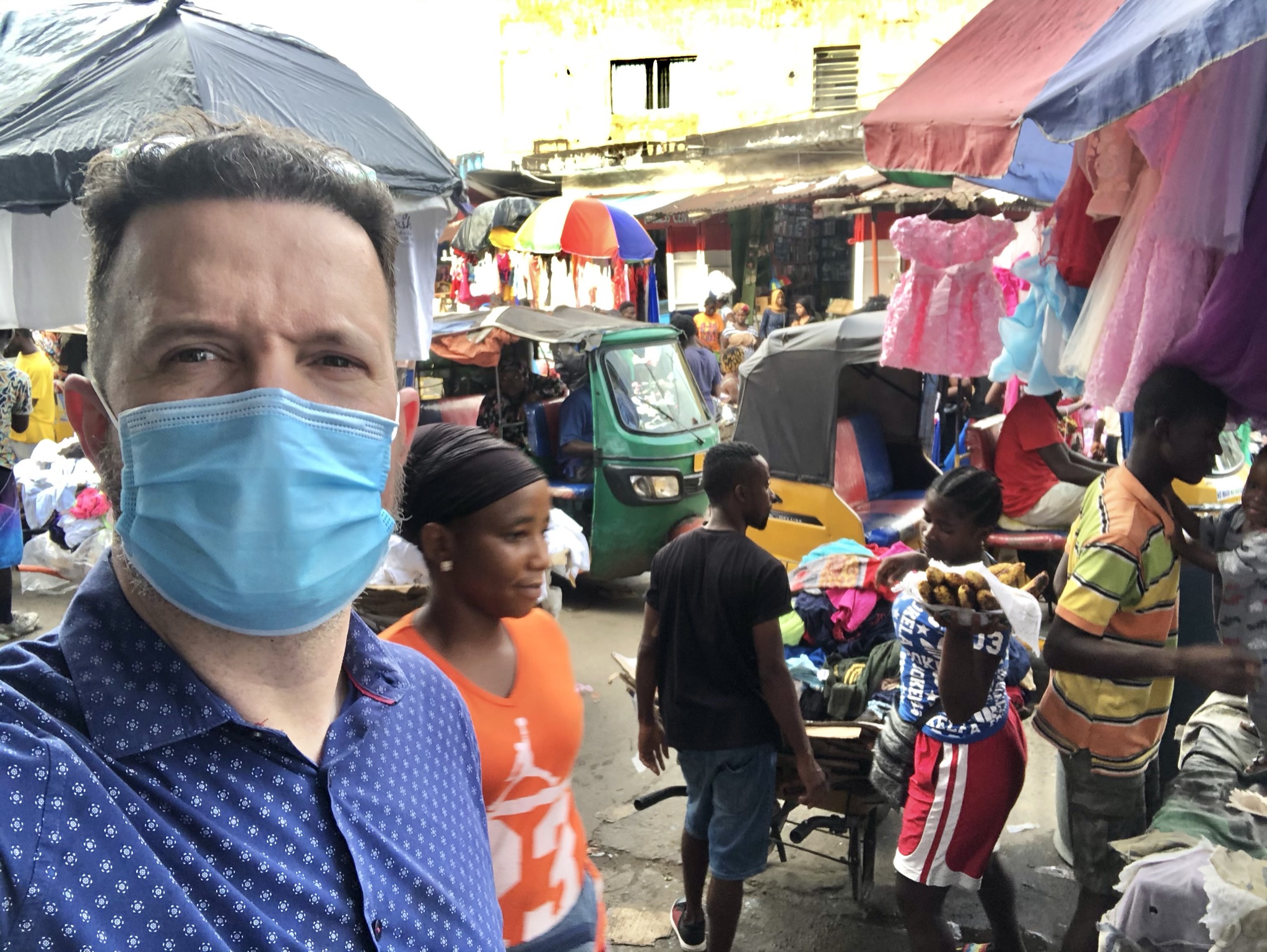
Up to my Old Tricks Again
I wanted to take photos of the market so badly. But it was too packed. The crowds were moving too fast and there was just too much going on. After you travel a while, you learn to get a feel for when it’s “right” to whip out your phone and take photos. I didn’t feel it was a good time now. Not because people weren’t nice, but there was just too much chaos. It’d be too easy for someone to snatch my phone (not an insult to Liberians…just common sense street smarts). And there were just so many people around, I’d have more of a chance catching someone in the frame who didn’t want to be photographed. That can get dicey, too. So I did what I learned to do a few years ago, during a market visit in Benin. I simply looked up! Up there! There was a balcony on the third floor with some young men hanging out, as if it was Mardi Gras. I caught their attention and motioned for permission to come up. They waved me in.
Now this is the kind of paragraph that would absolutely horrify my mother, and probably anyone else that’s never spent much time in Africa.
“Wandering into a dark hallway of a slum of a building, are you nuts? Surely that’s the quickest way to get robbed!”
Maybe I am too trusting or too naive. Or maybe it’s the opposite. Maybe I’ve traveled around Africa enough to understand that the majority of people here (and most places, really) are good humans. Right or wrong, soon I was trotting up those dimly lit concrete stairs and entering a vacant room on the third floor. The room looked abandoned – the kind of scene you’d see gangs and crack users camped out in. There were a couple guys inside, one of them clearly not African. I introduced myself and asked if I could have a look from the balcony. Permission granted from the Lebanese man named Abis. Oh yeah, we have to talk about the Lebanese in West Africa, it’s fascinating. But first, the balcony!
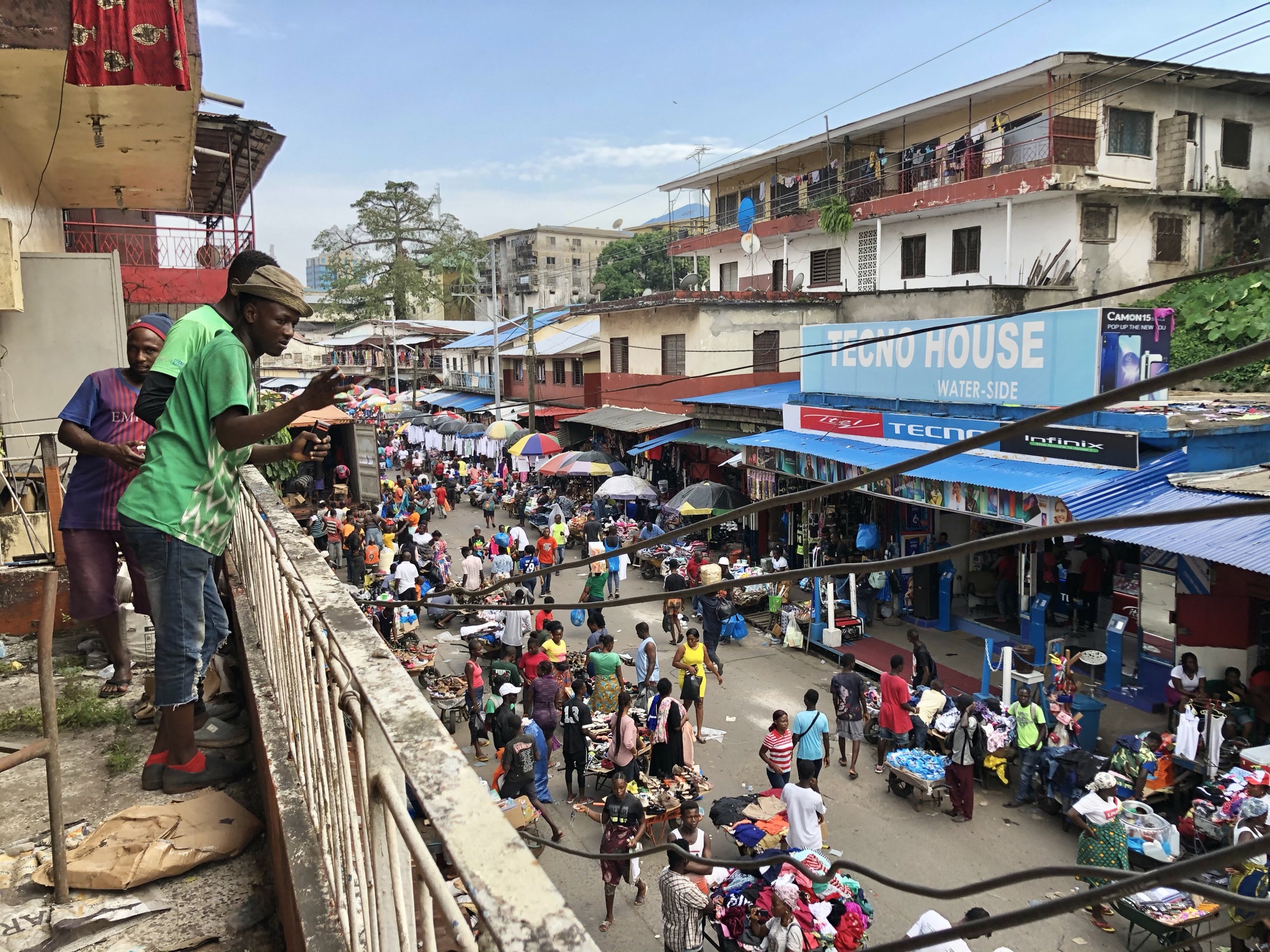
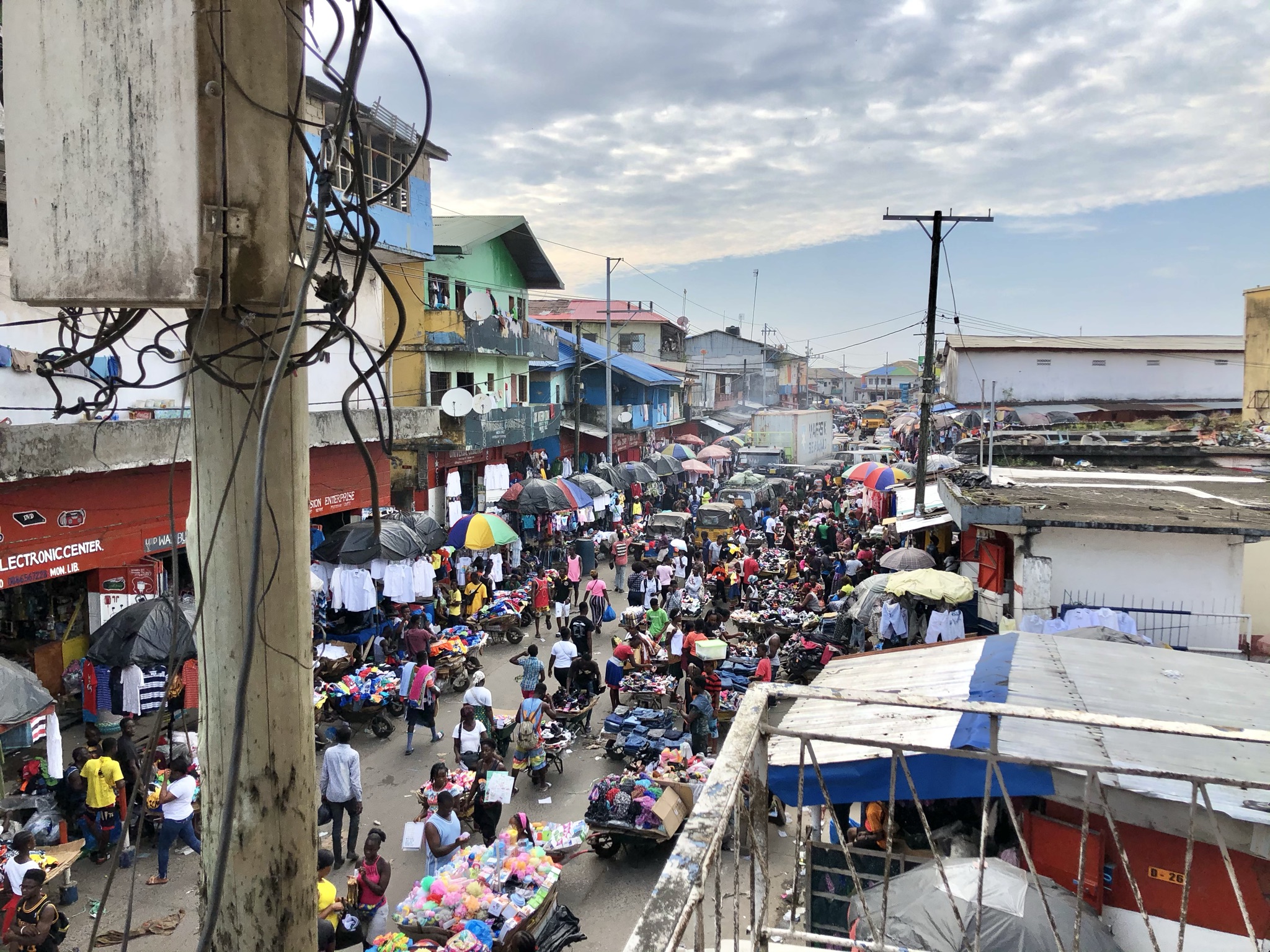
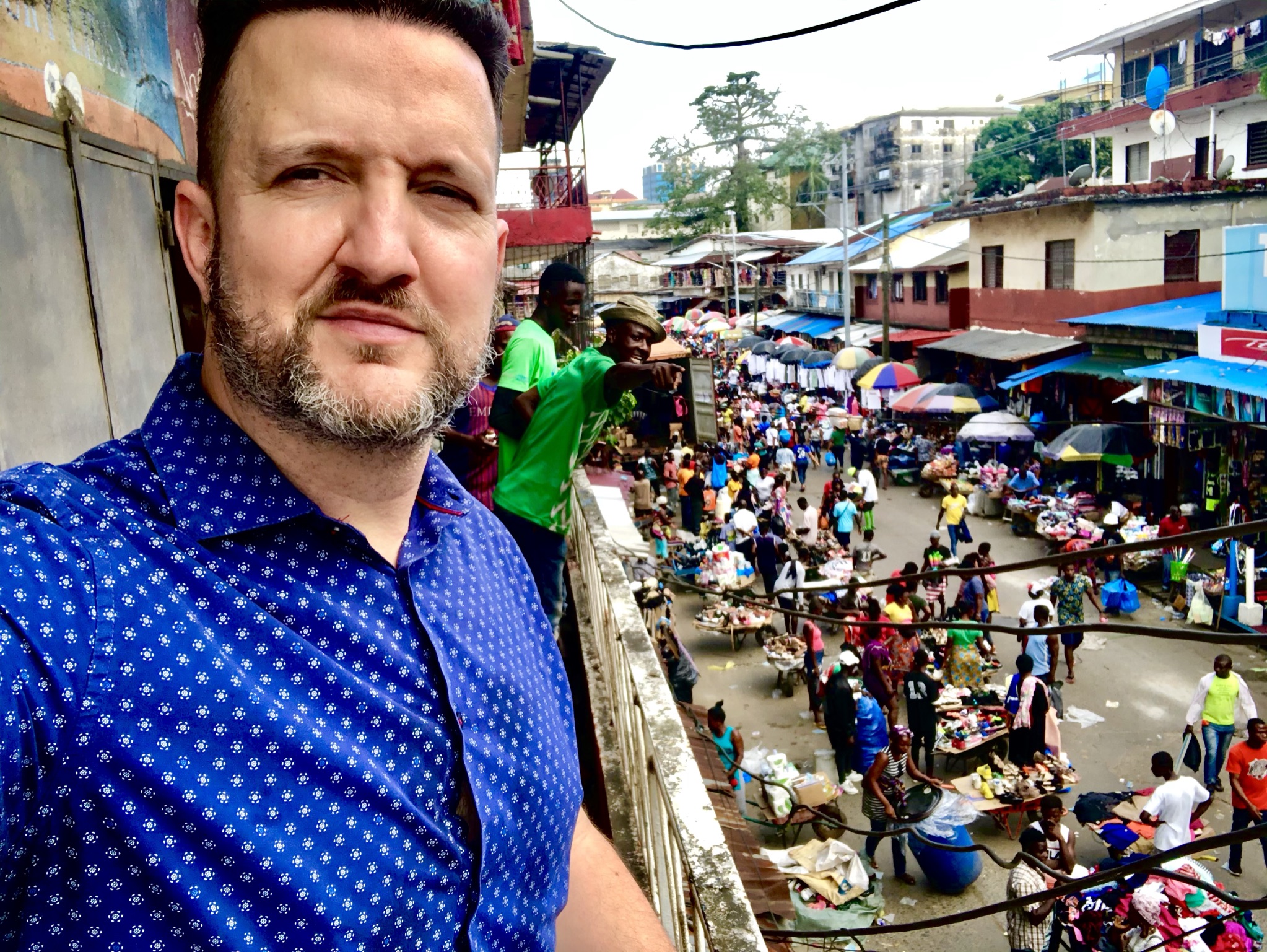
The Hotel Ducor
Even more than markets, I have a thing for big abandoned structures – especially places that were once super-duper fancy, and have since somehow fallen from grace and into deep despair and decay. How does something that was once someone’s grand plans and pride–a treasure worth millions–all of a sudden just totally become forgotten and fall apart? How and why does it happen, and most importantly, what was the deciding factor – the final straw where the owner just gives up and splits?
I’ve read about the Hotel Ducor from other travel bloggers and I was excited to see it myself. After I made my way through the market, I trudged up the hill towards the towering, weathered, concrete monstrosity that was once one of the finest hotels in Africa. I had to see it for myself!
As I approached the entry, there must have been about 30 or so young men all hanging out. Some were washing their motorbikes, others just sitting around. All eyes were on me, as I was the only Gringo in sight. This was the kind of scene I would’ve loved to grab some photographic evidence of, because it’s hard to describe how out of place I felt. It could’ve totally been a scene from a 1980’s Charles Bronson movie, the part where Charles turns down the wrong alley and has to fend off a mean gang of thugs. Only problem is, I couldn’t fight like Bronson, so there’s that. Was I a little scared? Maybe.
The fact is, I would’ve never dared to just come strolling in like I owned the place years ago, before I ever visited Africa – no way, no how. In fact, on my first trip onto the continent, I didn’t even dare walk anywhere alone – I had guides with me every step. I’m embarrassed to admit that many years ago, even in my wildest dreams, I wouldn’t have even thought of wandering the hoods of poor towns in Africa. But that’s exactly why travel is good for people like me. You are pleasantly surprised that not every person in a foreign country is “out to get you.” I feel a little bad even admitting that’s what I once thought, but hey, you grow up with movies and stories and the news – it’s easy to grow up scared of everything and every place that’s different. I’m getting off track. What I was trying to say was that I was a strange foreigner, wandering into someone else’s domain. Luckily, a smile, a wave and a, “Hey, how ya doin’?” goes a long way. Everyone hanging out–though they looked super tough–were just a bunch of laid back kicking back on a Saturday. It was less than a minute before one of the young men asked me if I wanted to see the hotel. Of course I did!
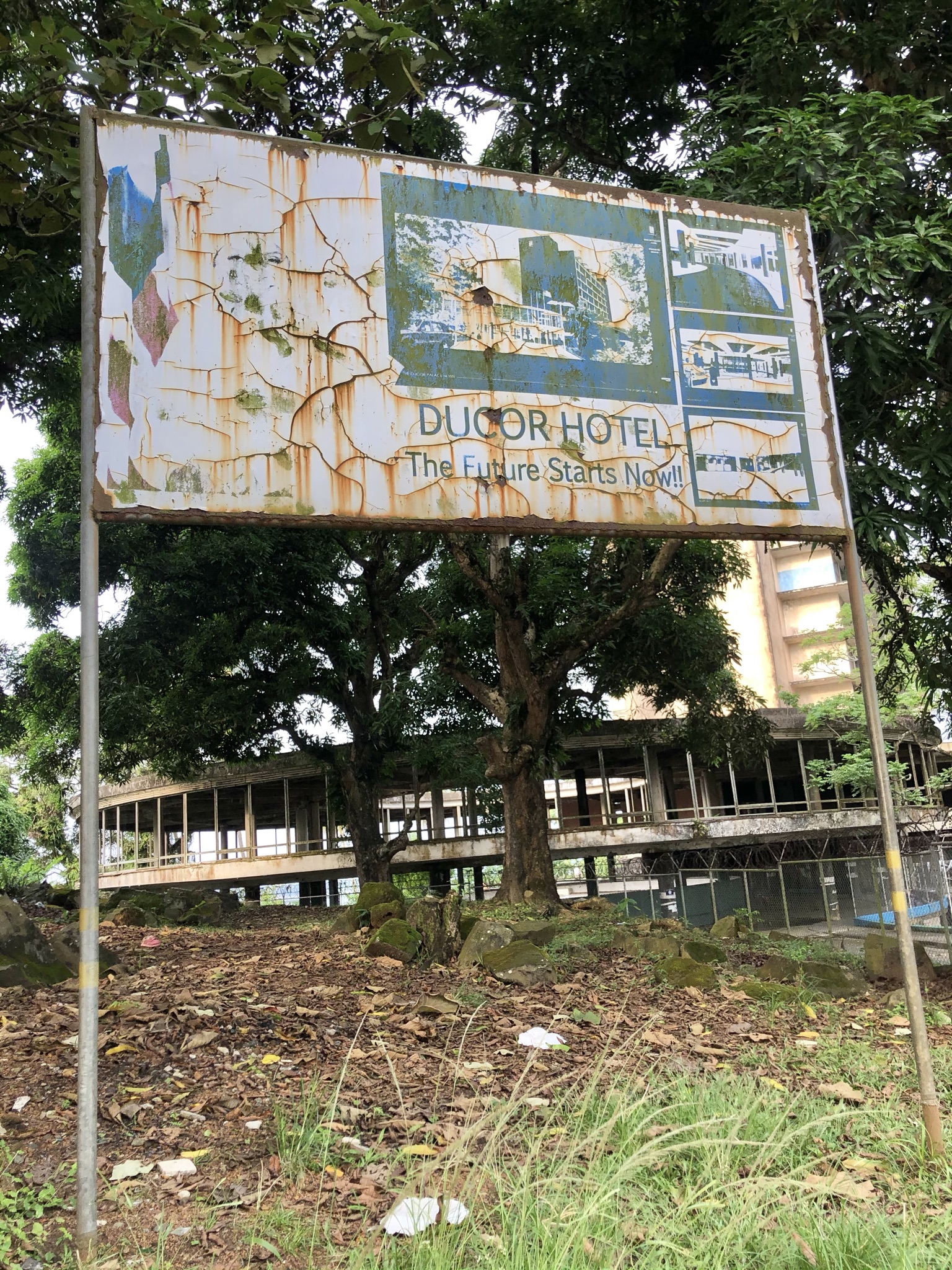
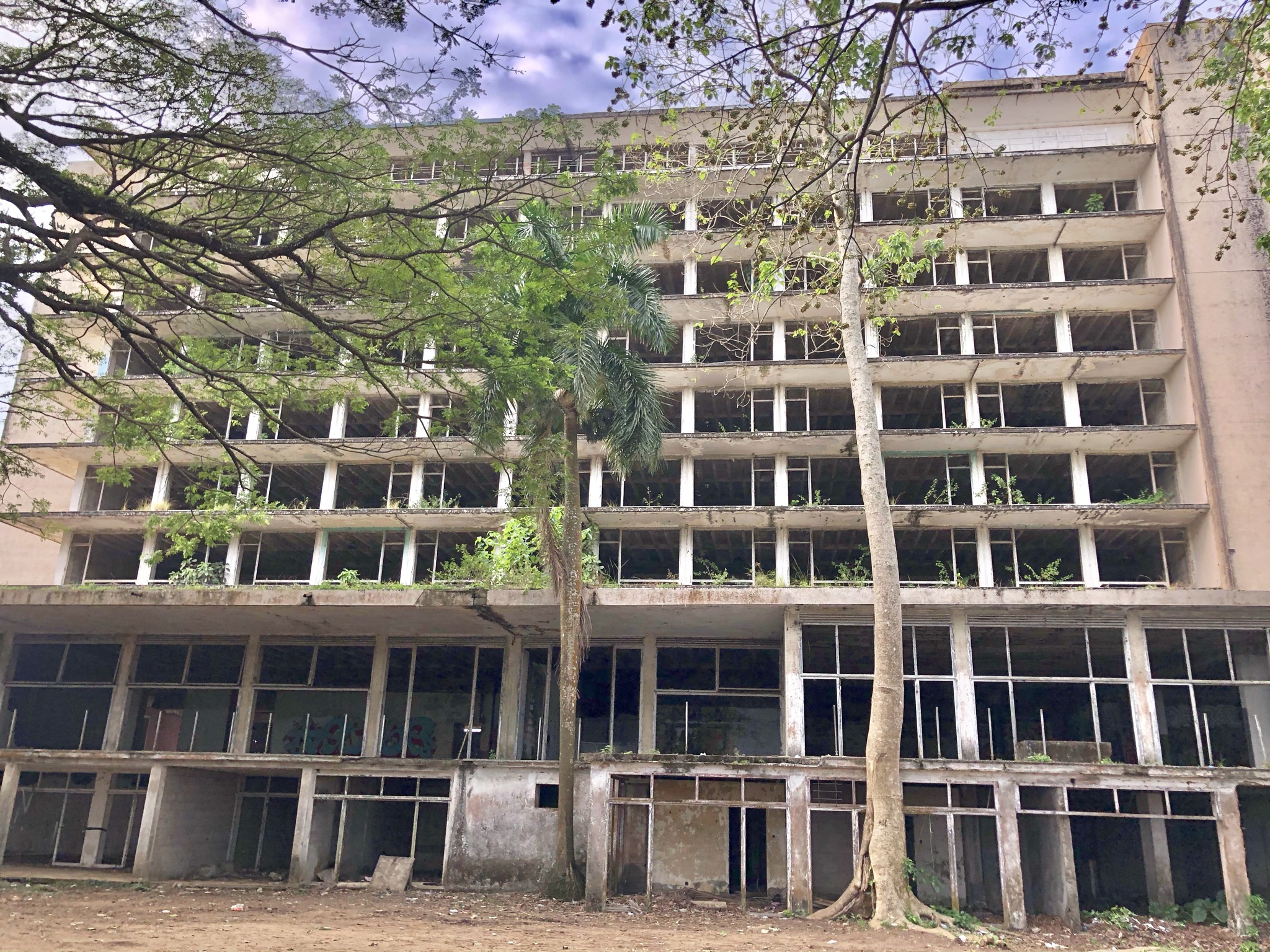
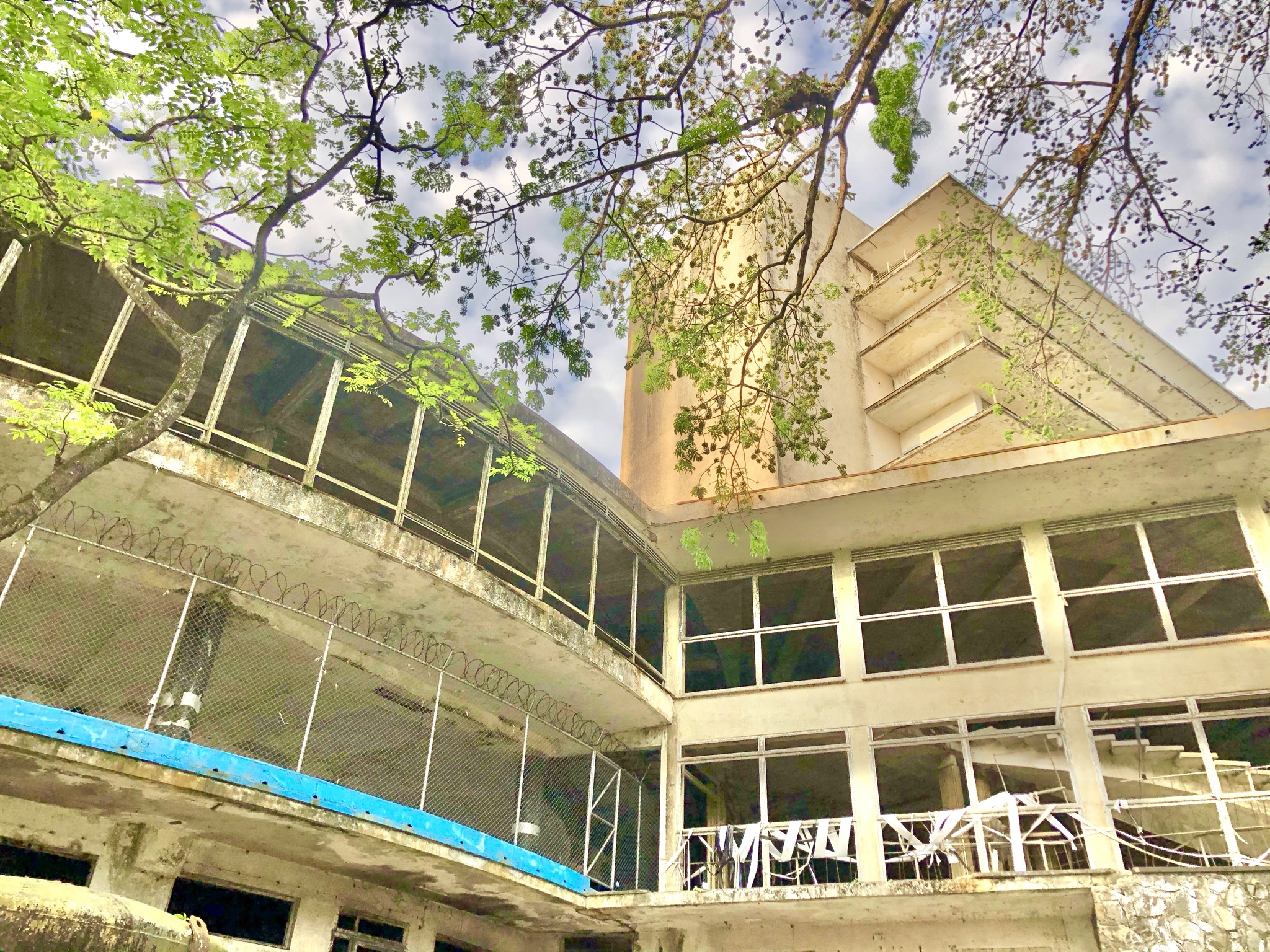
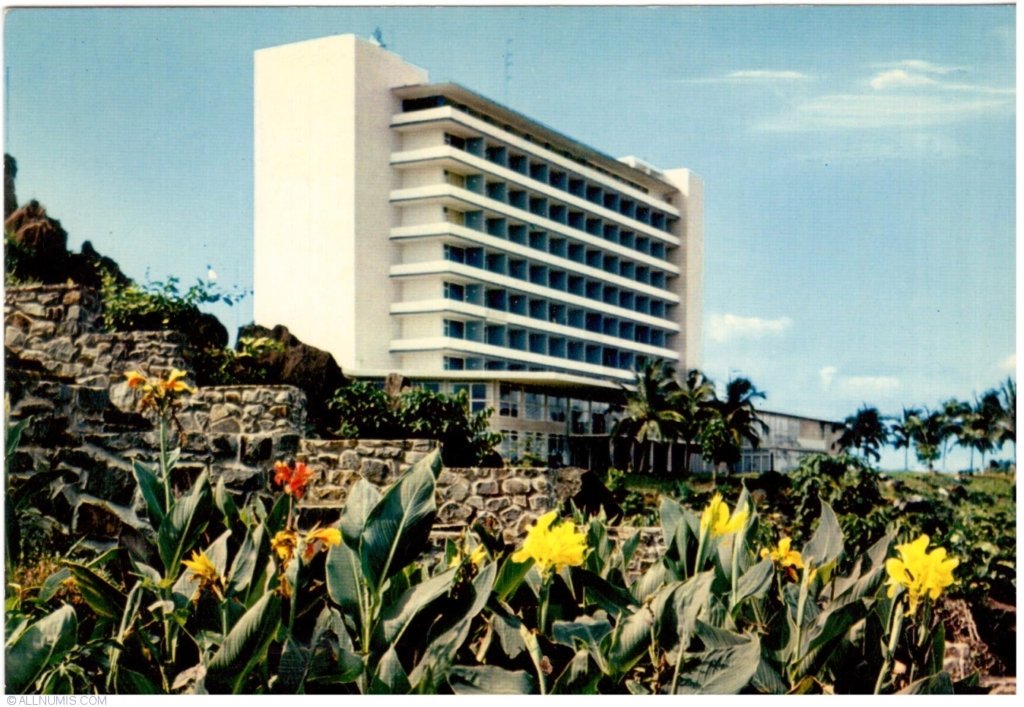
You Can’t Check in Anytime You Like…
Unfortunately the man that took me onto the hotel grounds wasn’t an official security guard – just a local, doing what he can to round up a few bucks as my “guide.” We were both soon asked to leave by a real security guard minding the property. I was bummed I couldn’t go in today, but planned to return the next day when there was a little more sunlight – and go straight to the security guard for permission to enter. Now that I had my bearings, it would be easier. I tipped the guy who showed me in and I was off. Back down the hill for the journey back to my hotel.
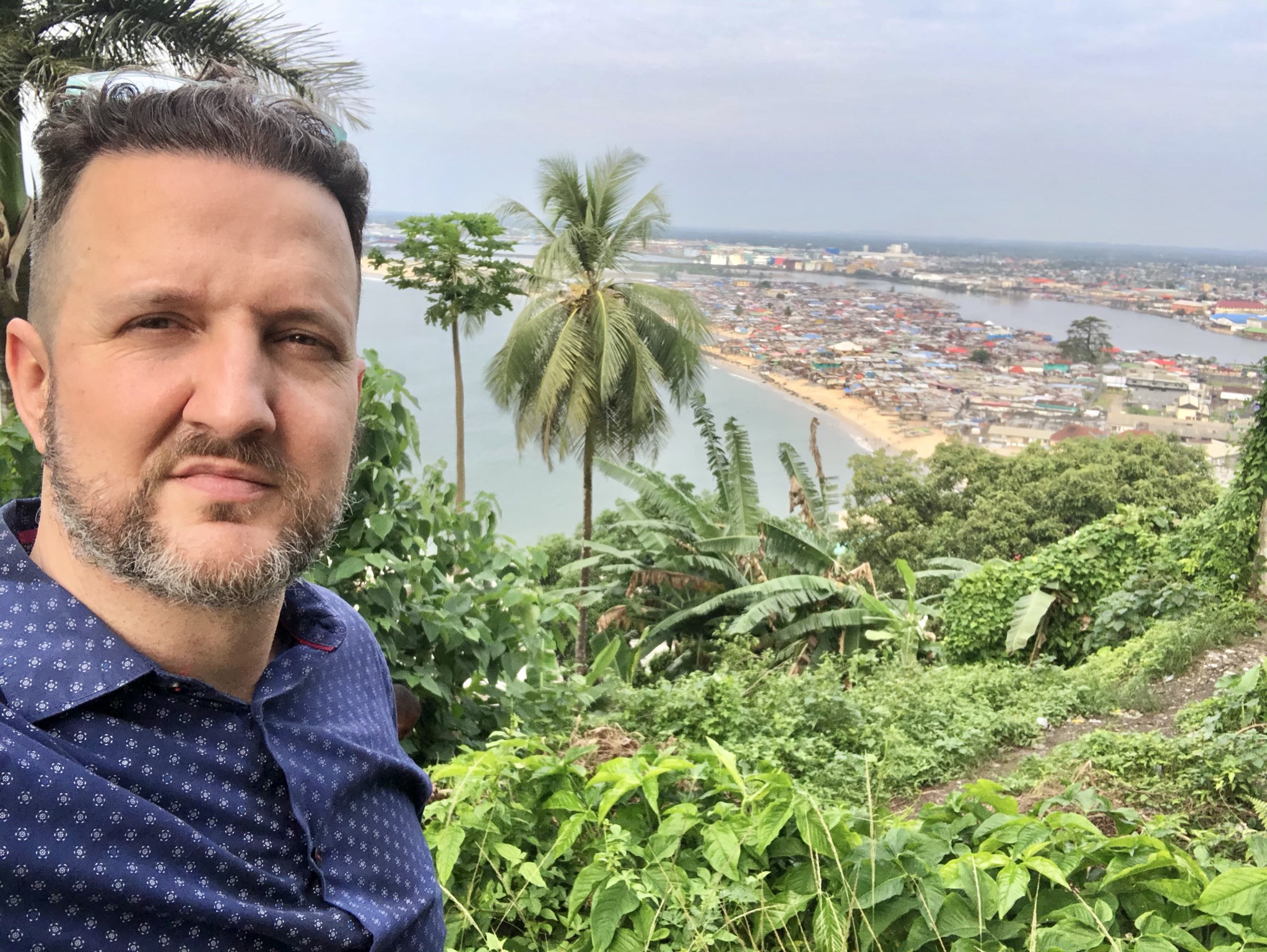
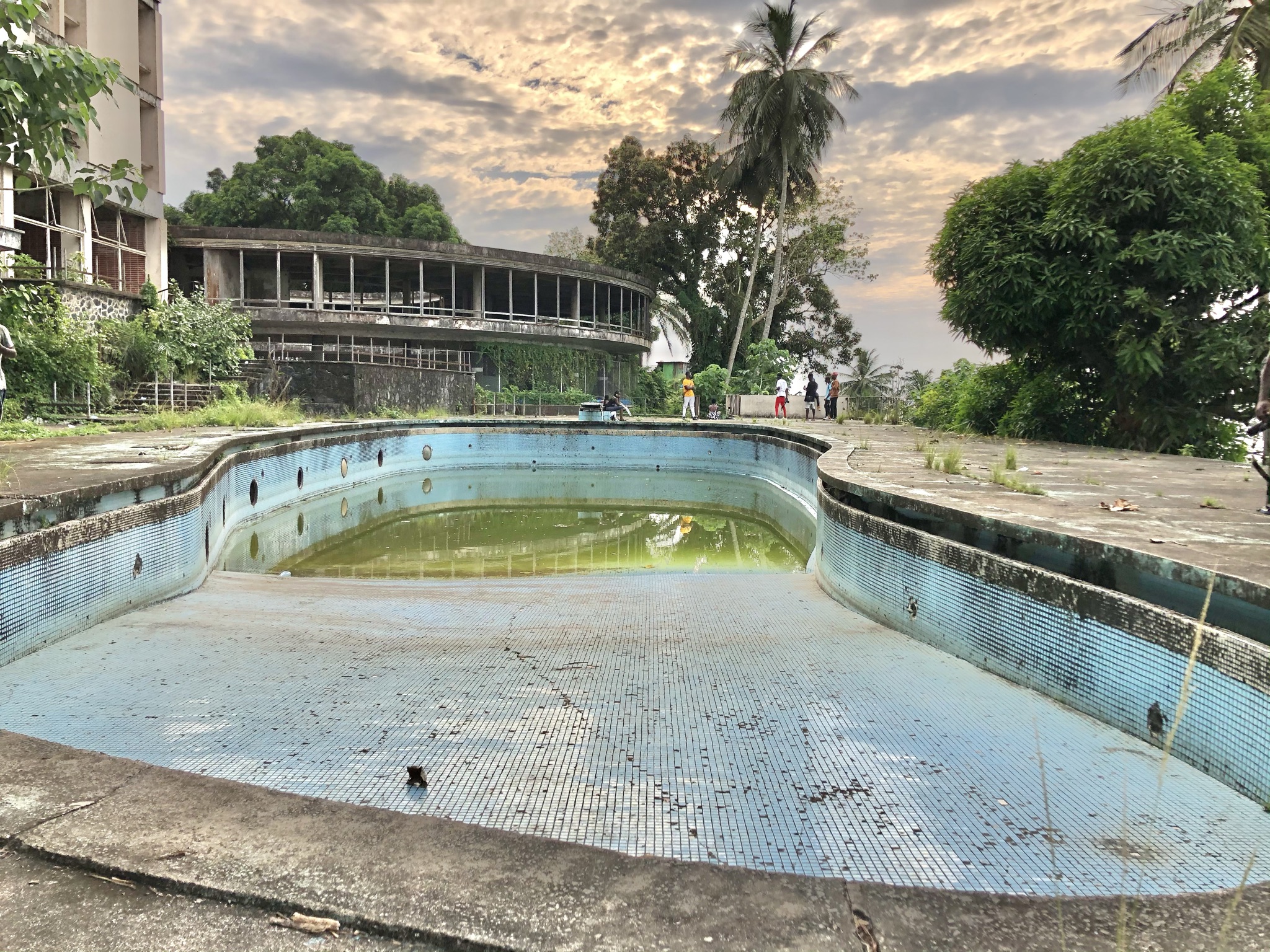
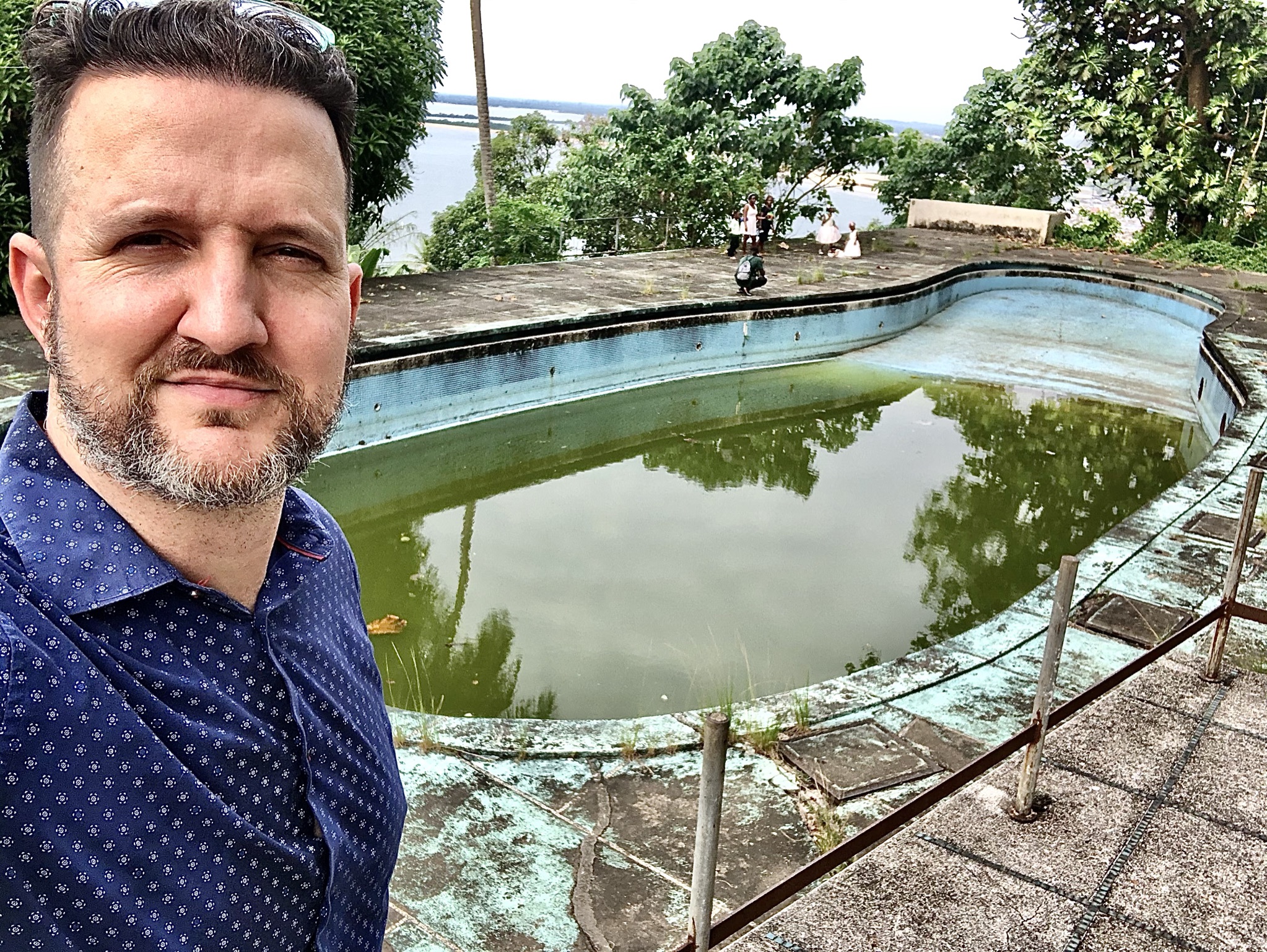
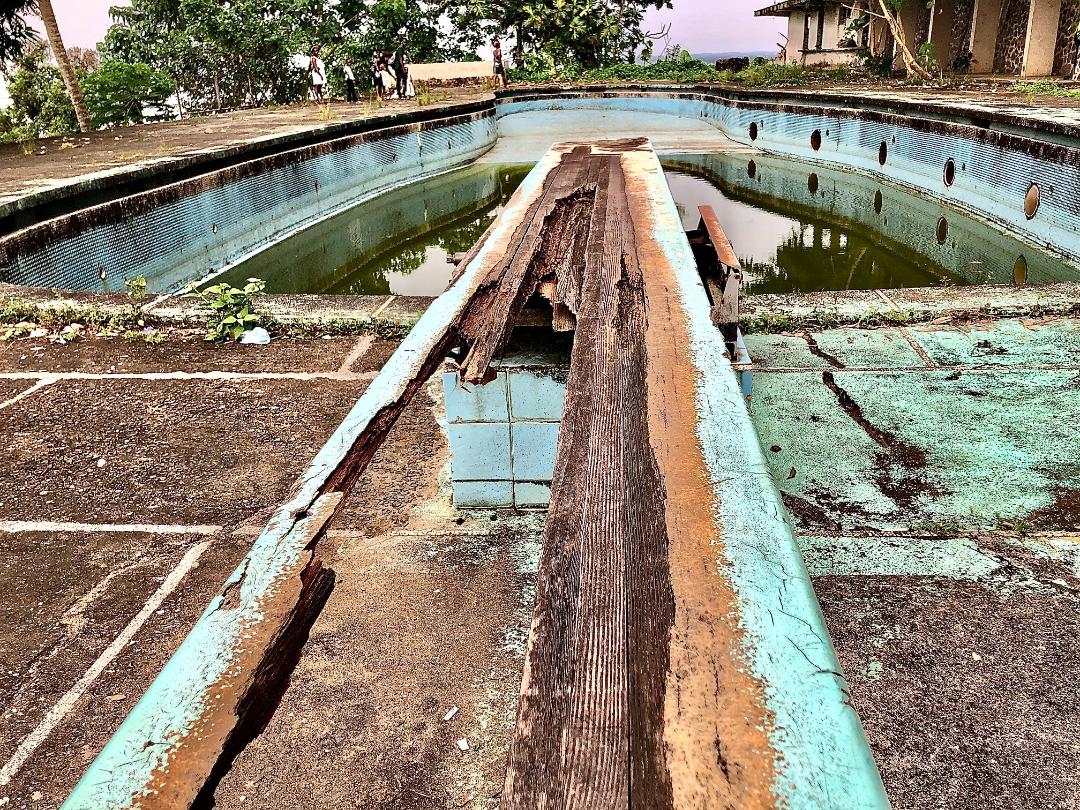
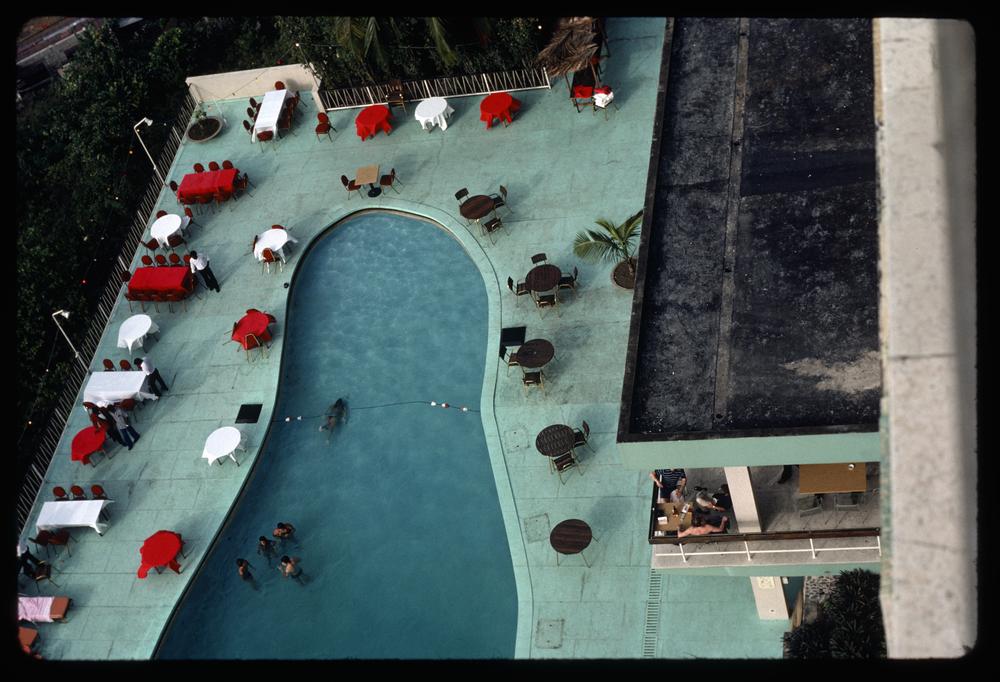
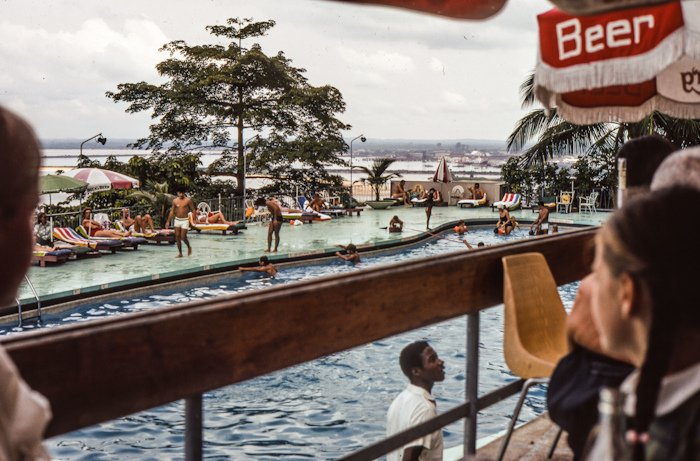
The Streets of Liberia
I learned a lot about Monrovia just walking the busy streets back to my hotel. Almost everyone was so nice. At least a dozen strangers stopped me just to welcome me to their country. Many extended their hand and I felt so bad refusing the handshake and returning a less-personal fist bump, but we are still in the middle of the pandemic. I tried to explain. Most of the children would smile and wave and shout, “helloooooo!” I’m not sure if I’ve ever been to a country whose people were this gregariously hospitable and welcoming. It felt good.
Some people asked for money, but never in a menacing way. One man introduced himself by name and then asked if I’d buy him a bowl of rice. A couple young men caught my attention and then with their hands motioned as if they were drinking out of a bottle: a non-verbal way to ask if I’d buy them a soda. I felt bad not taking care of any of these folks, but I’d learned from my mistakes: Slip just one person a couple bucks in an area like this, and in ten seconds you’ll have a line of dozens asking the same thing, following you for blocks. It’s really a tough situation and I wish I could help everyone, every time.

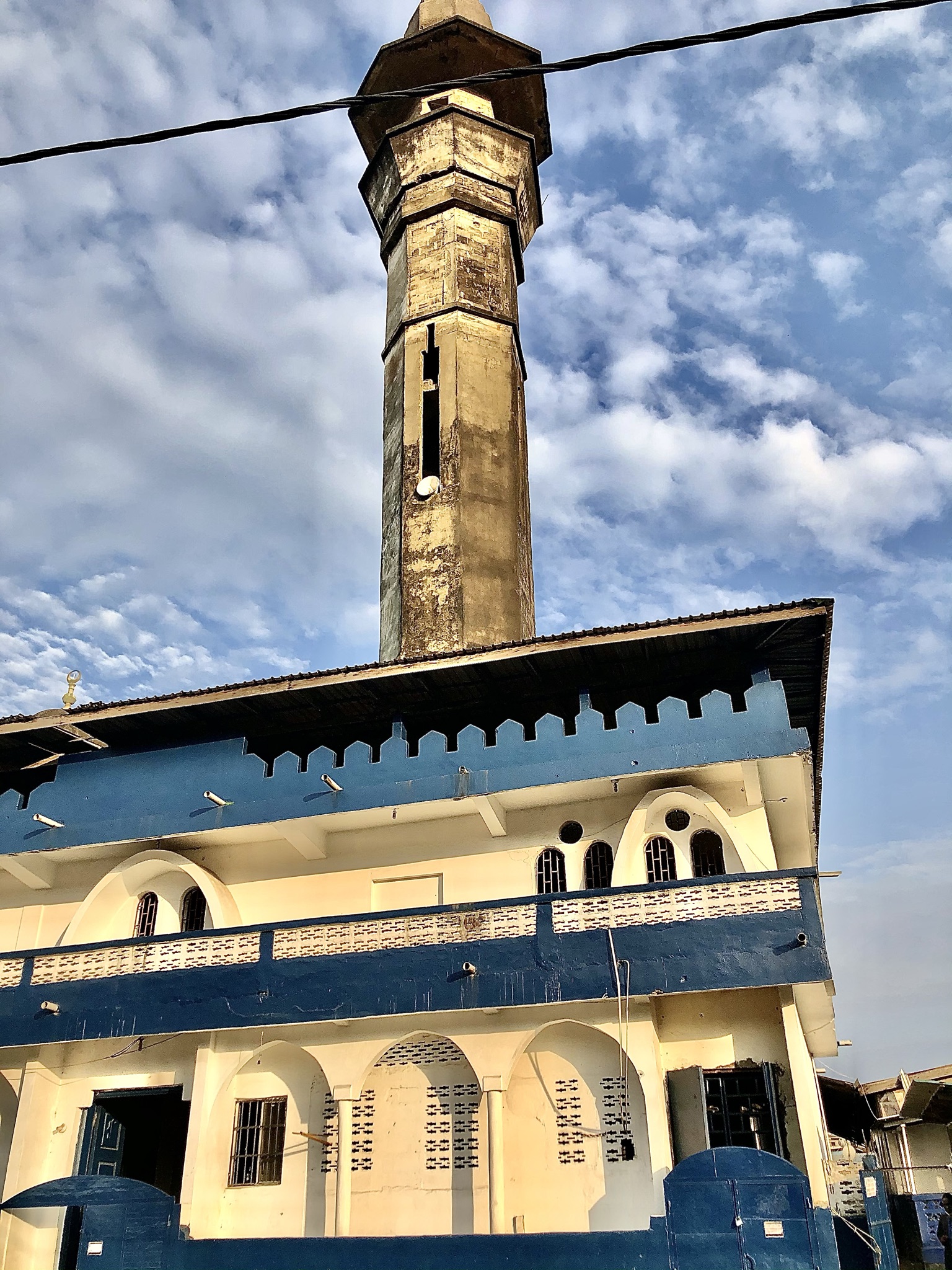
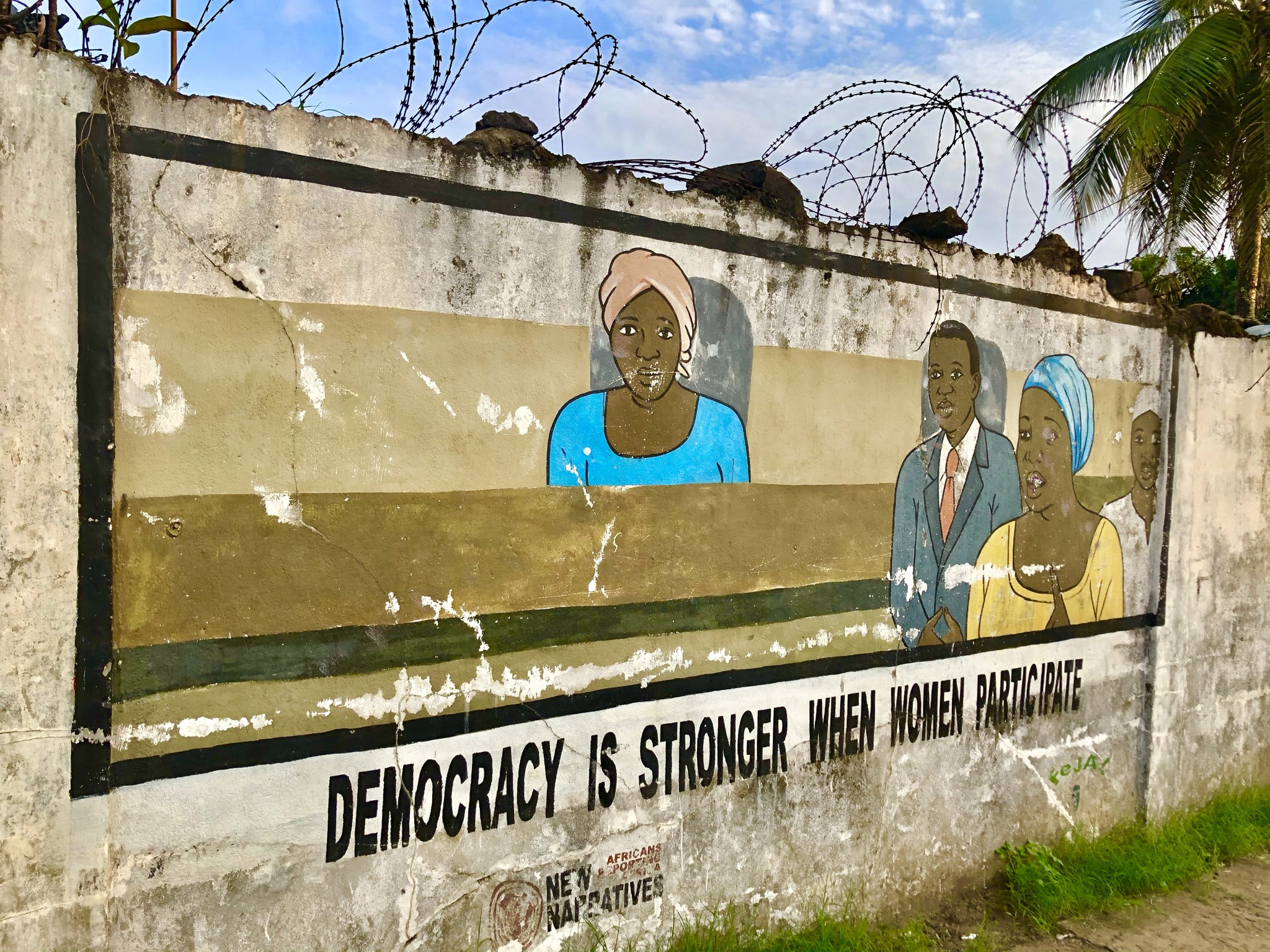
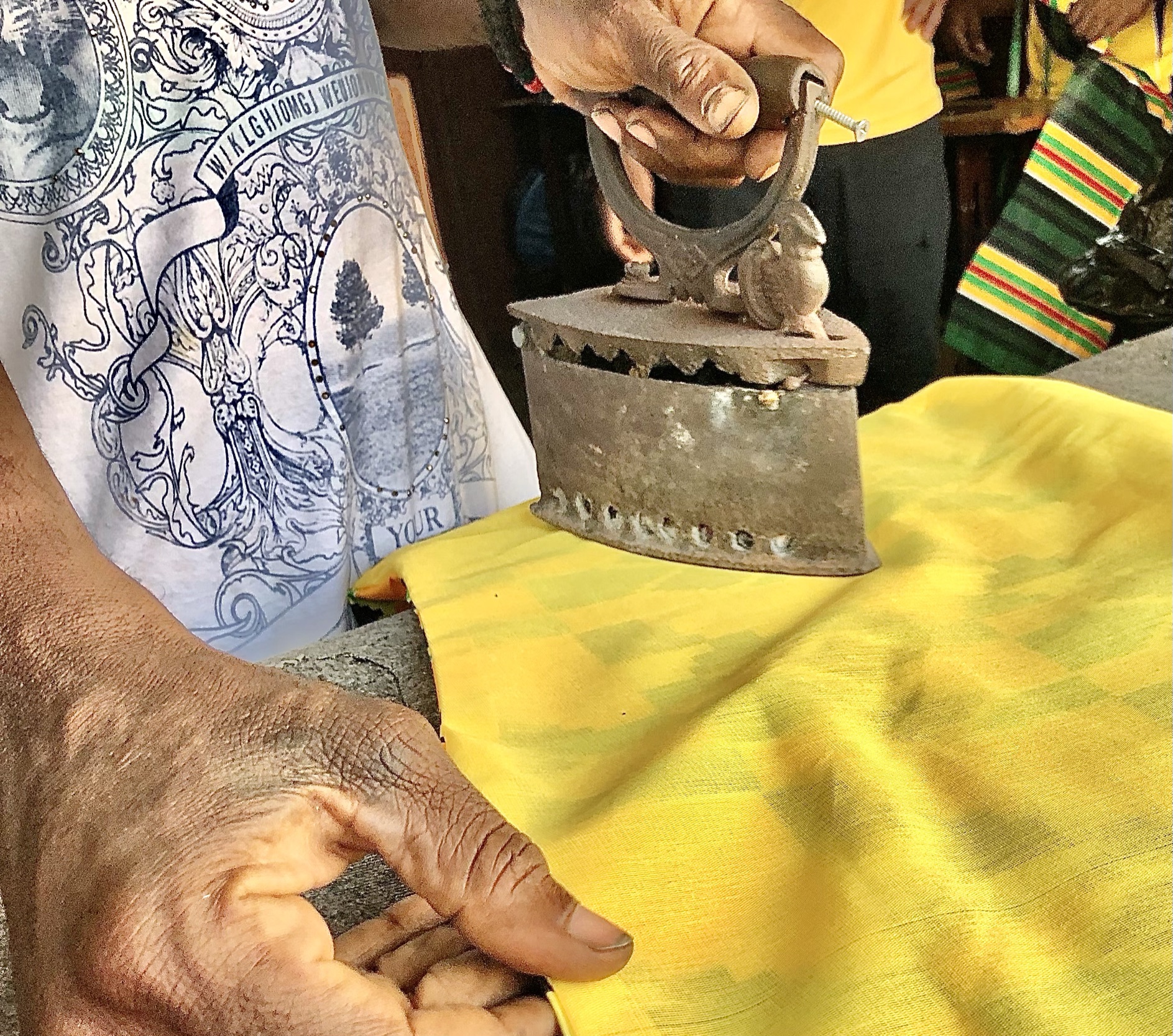
The Lebanese in West Africa
I remember how flabbergasted I was on my first trip to Africa, when I realized the restaurant I was eating at in Burkina Faso was owned by a Lebanese family. Burkina-freakin-Faso of all places – a country most of my friends had never even heard of! How and why the heck did a Lebanese family decide to come here and open a restaurant? Seemed so random to me at the time; a chance encounter. But I soon realized this was par for the course, and that the Lebanese had a strong business foothold all over West Africa, especially in the hotel and restaurant industry. Almost everywhere I traveled in West Africa, I ran into companies owned by the Lebanese; even in the Central African Republic, where I had beers on the banks of the Ubangi River with a Lebanese man who owned a timber business there. So fascinating!
Liberia was no different. I realized who owned the hotel I was staying at as soon as I opened the menu at the restaurant that night…kebabs and hummus, yum! One quick Google search confirmed I was staying at a Lebanese property. So interesting! I enjoyed my giant plate that night on the terrace. The weather was just perfect (it was stifling hot in the daytime). After dinner, it was off to bed for a full day to explore in the morning.
Dig Deeper: Here’s a super interesting article about the Lebanese in West Africa.
More Ducor
First order of business on day two was to get back to and inside the Ducor Hotel. I’d save my energy and hire a tuk-tuk to get there this time. (They call the motorized rickshaws kekehs here.) My driver was a young man named Afa from The Gambia. When I replied back to him with his country’s capital city, “Banjul!” he approved with a howl. People love when you know their homeland. I’ve made so many friends with taxi drivers because I’ve been to their hometown. They love it and are usually shocked I’ve been there.
We arrived at the Ducor, this time bypassing the crowd of loiterers and heading straight to the main gate to see the security guard. He approached the chainlink fence and I asked him if it was possible to take a tour. I’d recently read on a blog that it was indeed that easy, and that the security guard on duty would gladly give tourists tours, with the expectation of a small gratuity. Unfortunately, this didn’t work out for me today. The man asked me to call his “boss” for permission, so I did. The man on the other end of the phone (“the boss”) was very pleasant, but explained they were doing some work inside (something about concrete) and I could come back next week. What a bummer!
Here’s an awesome blog from a fellow traveler who details his successful visit to the Ducor. Read it HERE.
Fun Fact: The Ducor property is now owned by the Libyans (not to be confused with the Lebanese). HERE is a very interesting article on the hotel, which apparently is going to be reopened…at least, that’s the plan.
I missed breakfast today and I was hungry so I had Afa leave Mamba Point and take me a couple miles into town for lunch at the Royal Grand Hotel. I enjoyed my steak sandwich and tropical smoothie at this upscale (for Africa) Lebanese-owned hotel.
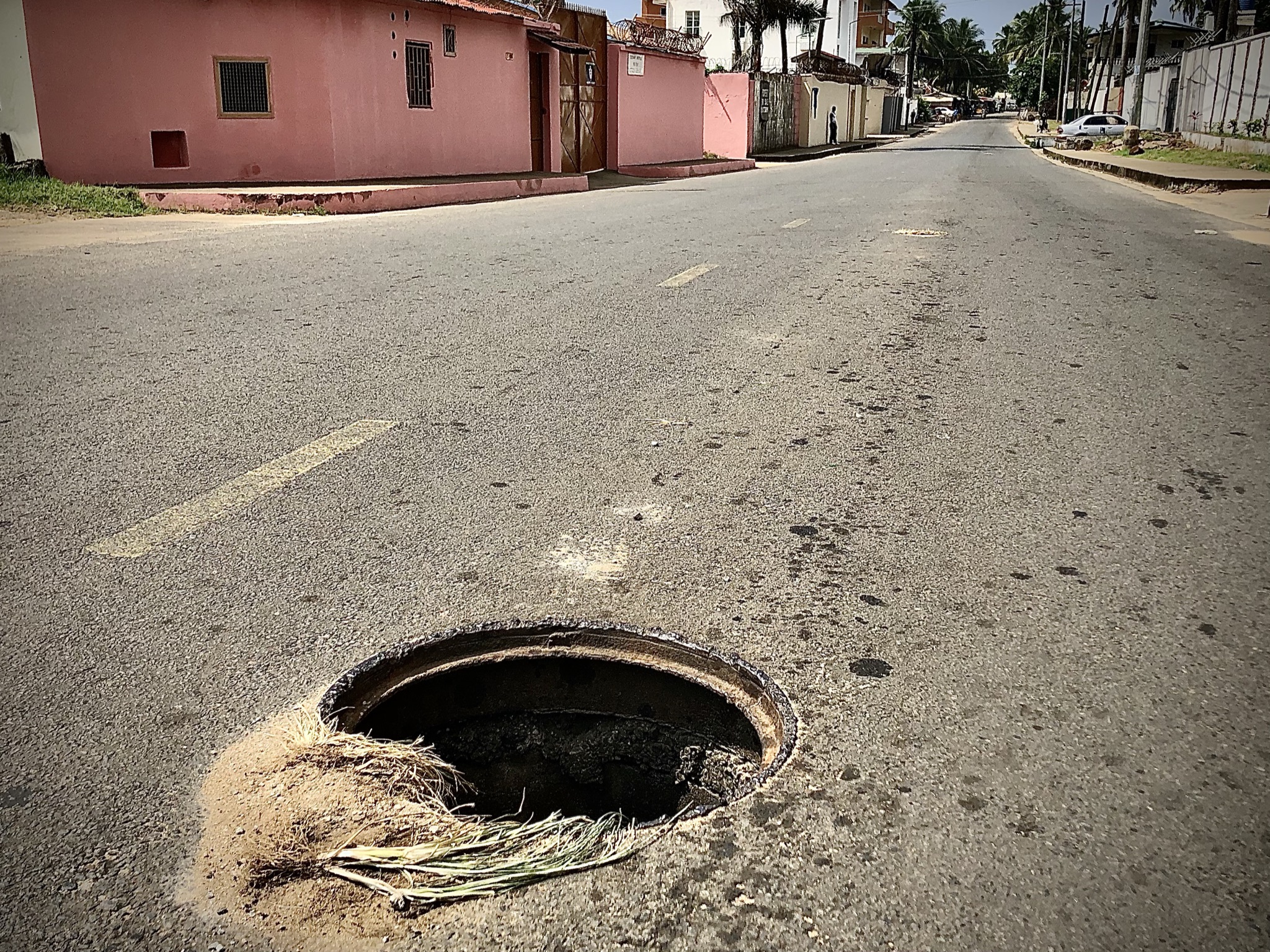
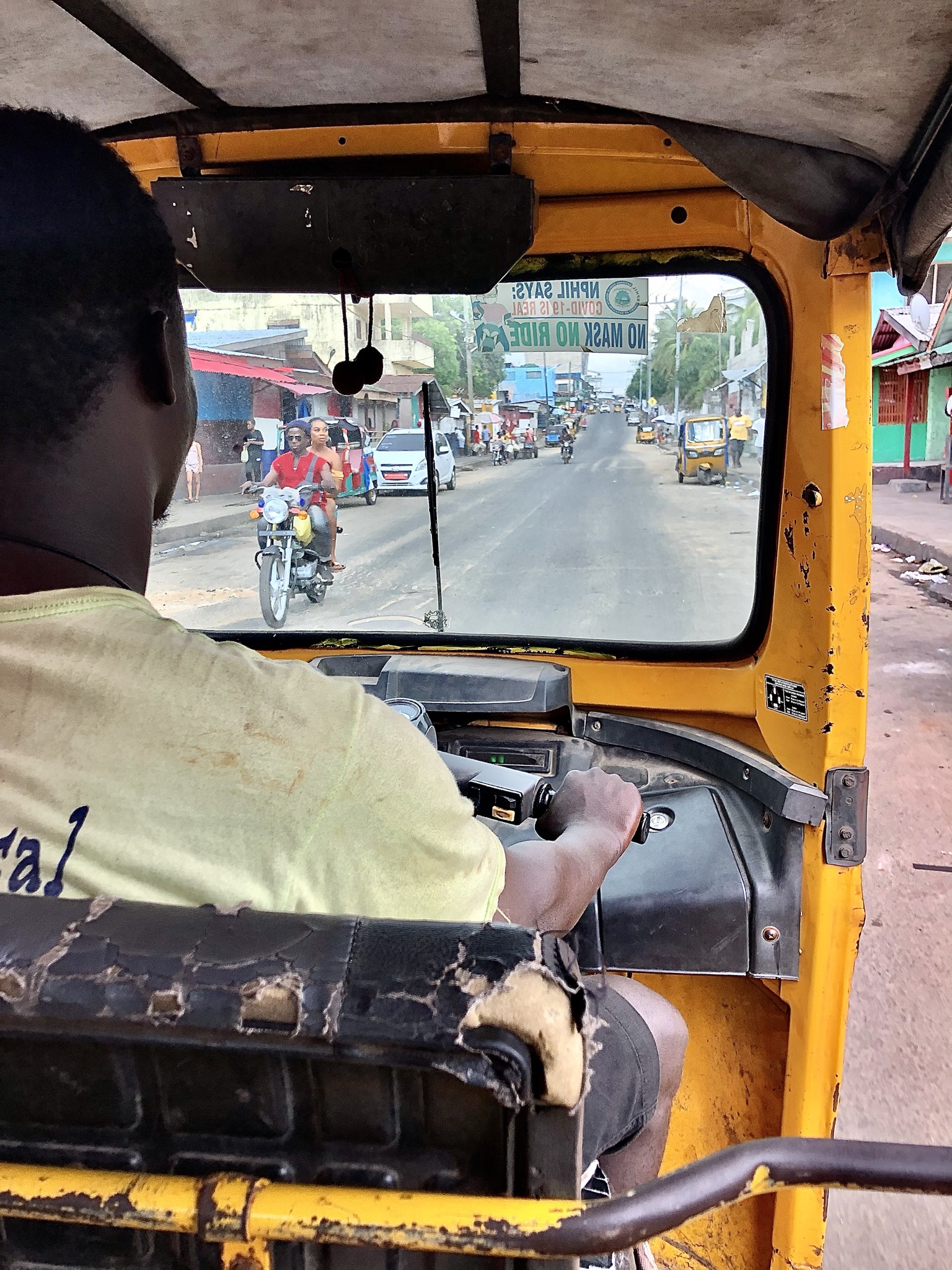
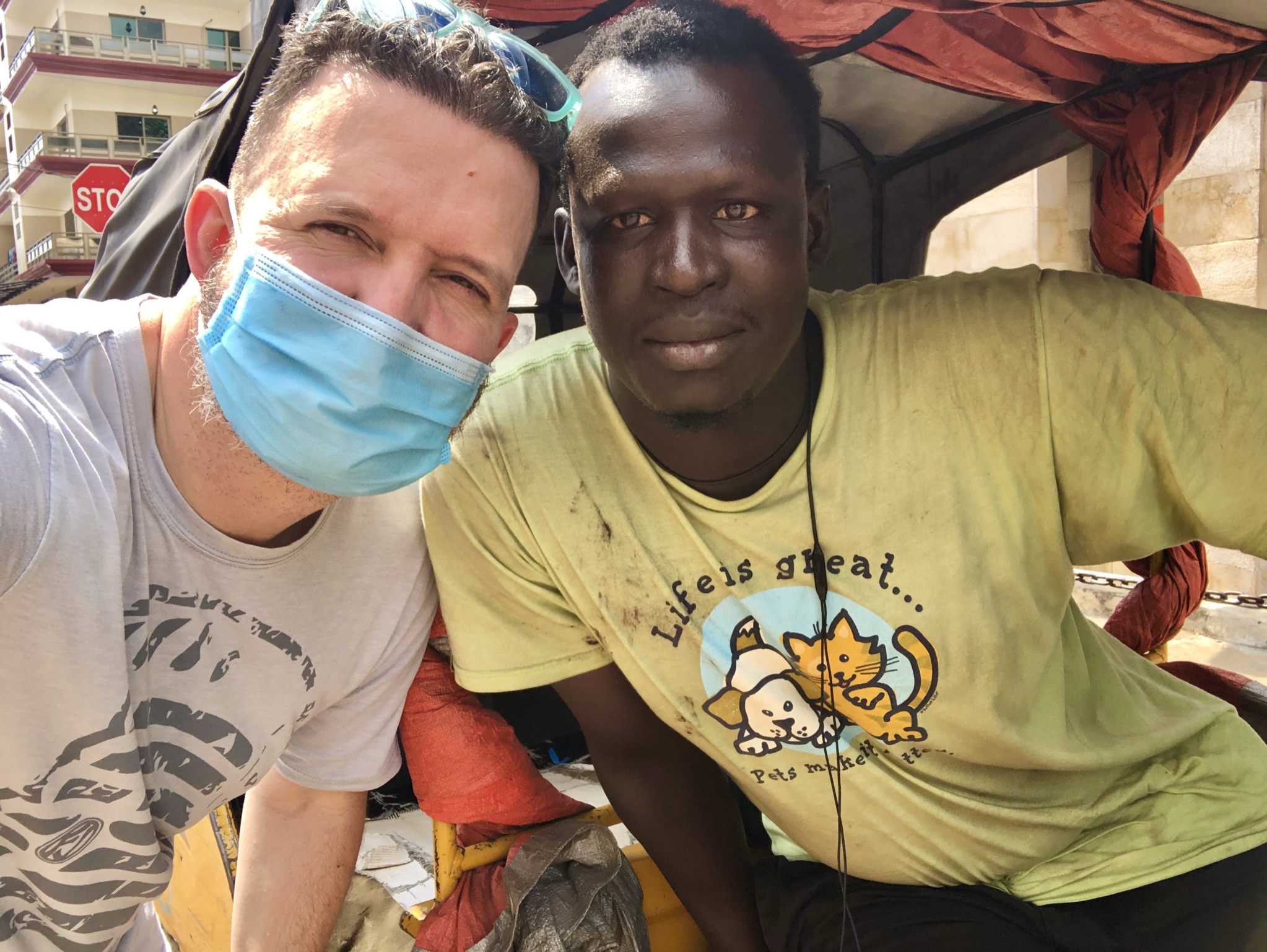
And Now, the REST of the Story
After lunch at the Royal Grand, I grabbed a taxi back to Mamba Point and started my exploration at Centennial Pavilion where there was a wedding happening. Everyone looked so sharp, especially the groomsmen, dressed in coral colored suits. Oh how I wanted a picture, but when I greeted one of the tough-looking young men with a, “You look great!,” he looked at me as if he wanted nothing to do with me…that, or he wanted to kick my ass. Either way, he didn’t look like he was in the mood for a picture. I cut him some slack – I imagine he was miserably hot inside that three-piece suit.
Seconds later, I was invited in for a private tour of the National Museum by a man named Dolo. I’m not a “museum guy” at all, but I really enjoyed this one and recommend you go if you come to town. Why? Liberia has one of the most fascinating stories of all of the countries in Africa…maybe even the world. The nation was actually formed and founded by former American slaves. The freed slaves were basically “sent back to Africa” to “make” the country of Liberia. And here’s where it gets weird: apparently, these guys (and gals) came back to Africa super “Americanized,” all the way down (or up) to their white powdered wigs! And, if I heard correctly, these former slaves were dicks to the natives in Liberia, treating them as an underclass. Talk about a reversal of roles! The entire history of Liberia is just incredible and now I’m going to have read more about it or find some documentaries.
Because of the country’s history, so many things, even today, are super-American! From their money, to the fashion, to the names of the streets: like Benson, Newport, Broad, Lynch and Johnson Streets. Even the capital, Monrovia, was named after President James Monroe. Wild!
By the way, I mentioned money. Liberia has their own currency, but you can also use the American dollar, and let me tell you – every piece of American currency I came across was barely held together and was almost completely black with wear. I’ve never seen money in worse condition!
Another run fact: The world’s largest rubber producing plant is in Liberia and it’s owned by Firestone. There were also a couple of pretty nasty civil wars, and the museum shows some incredible yet horrific pictures of those bad times. Even my guide admitted that during the war he had to carry a gun with him, just to be able to move freely. It was indeed the wild, wild west, here in Africa.
Finally, I got to take pictures of some former Liberian presidents’ cars. These (or most of these) presidents had all been assassinated.
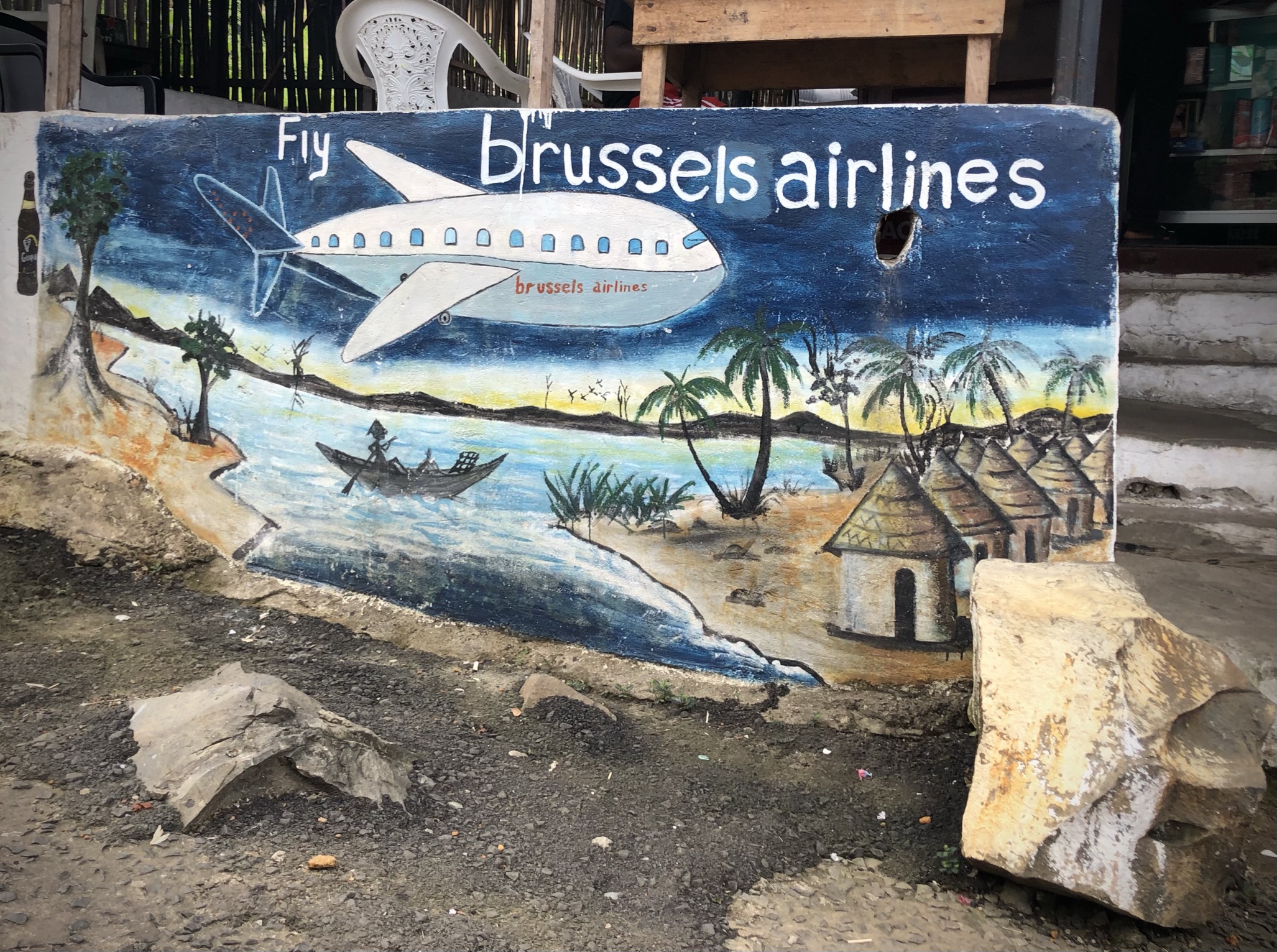
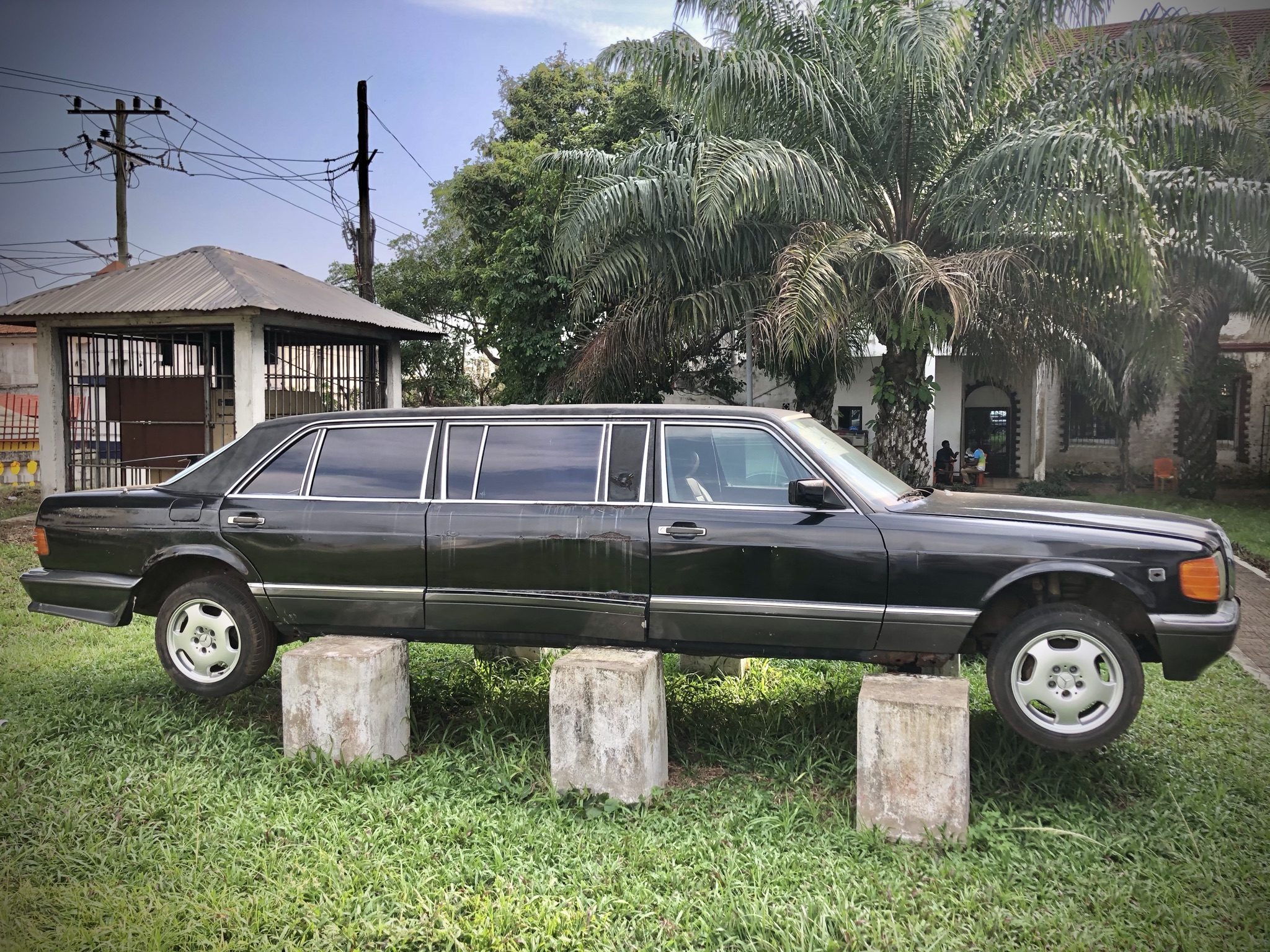
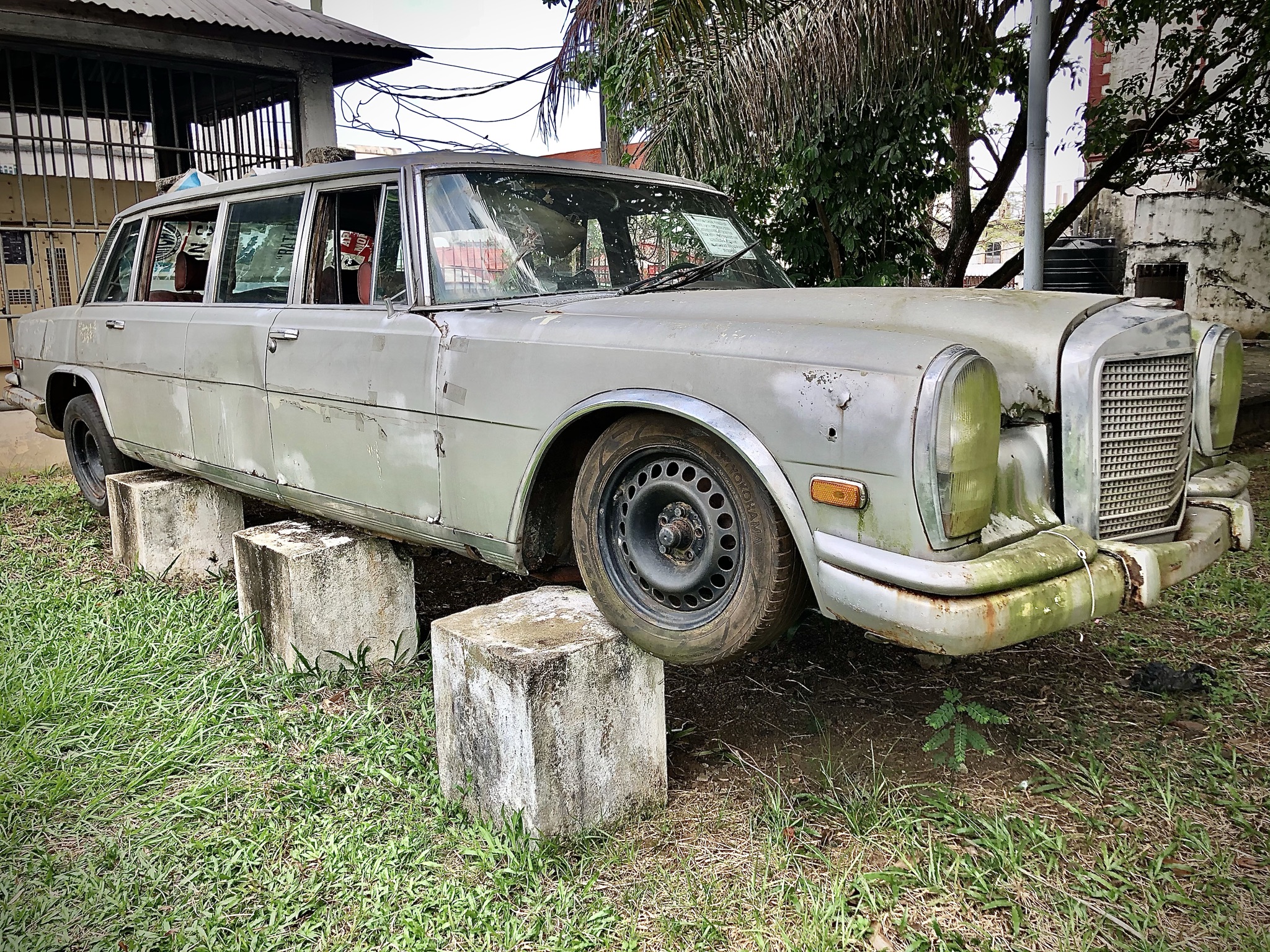
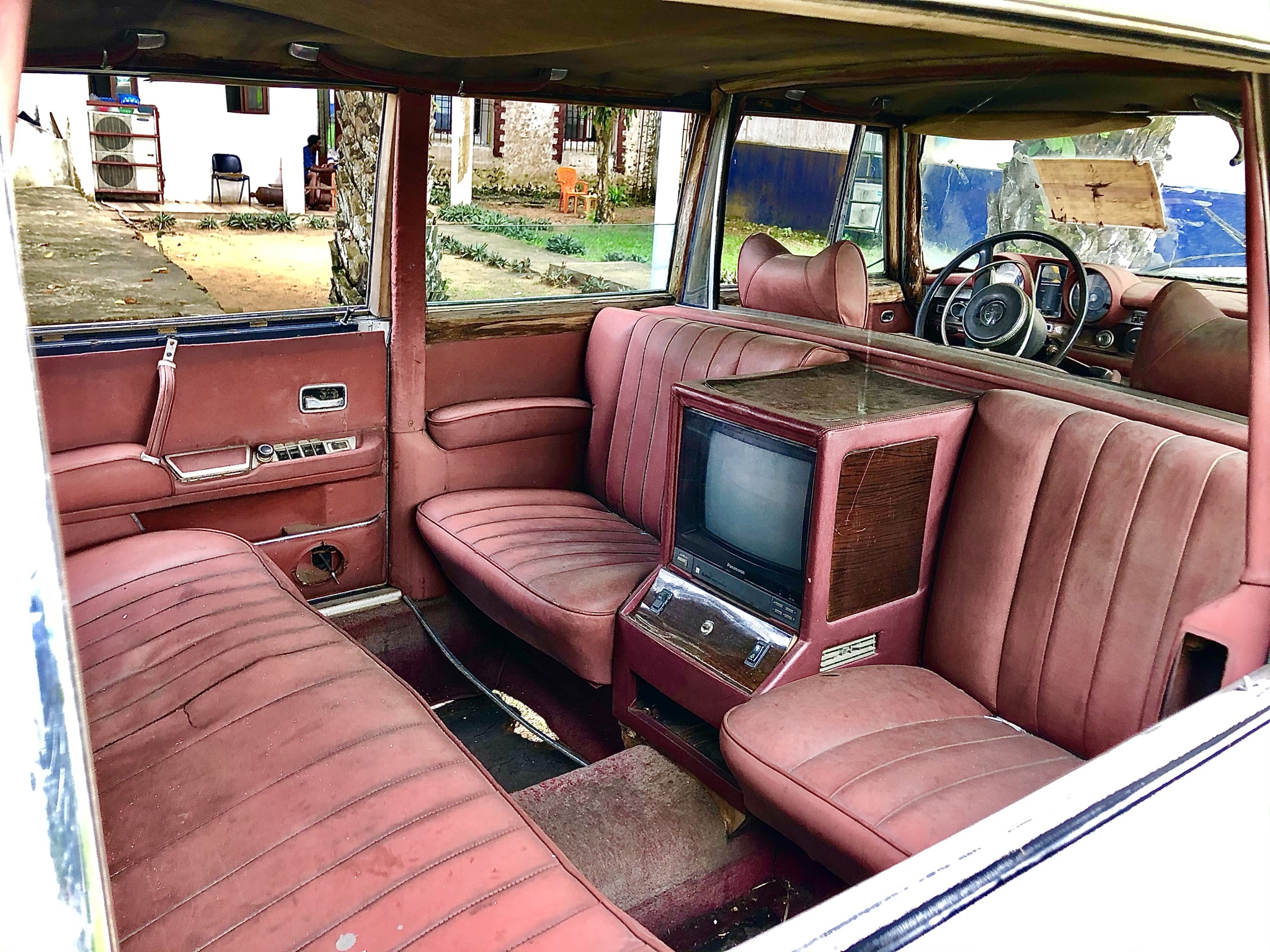
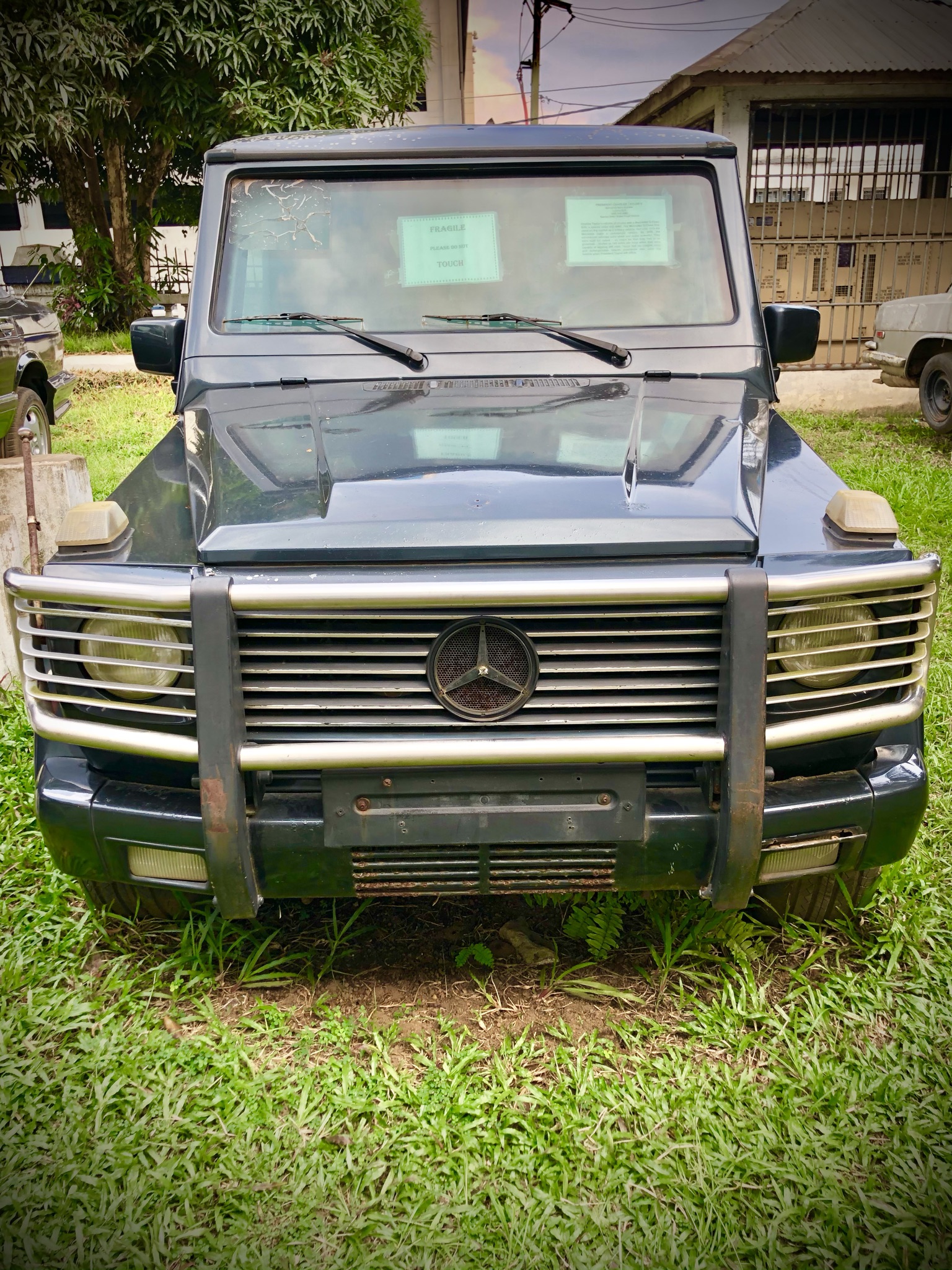
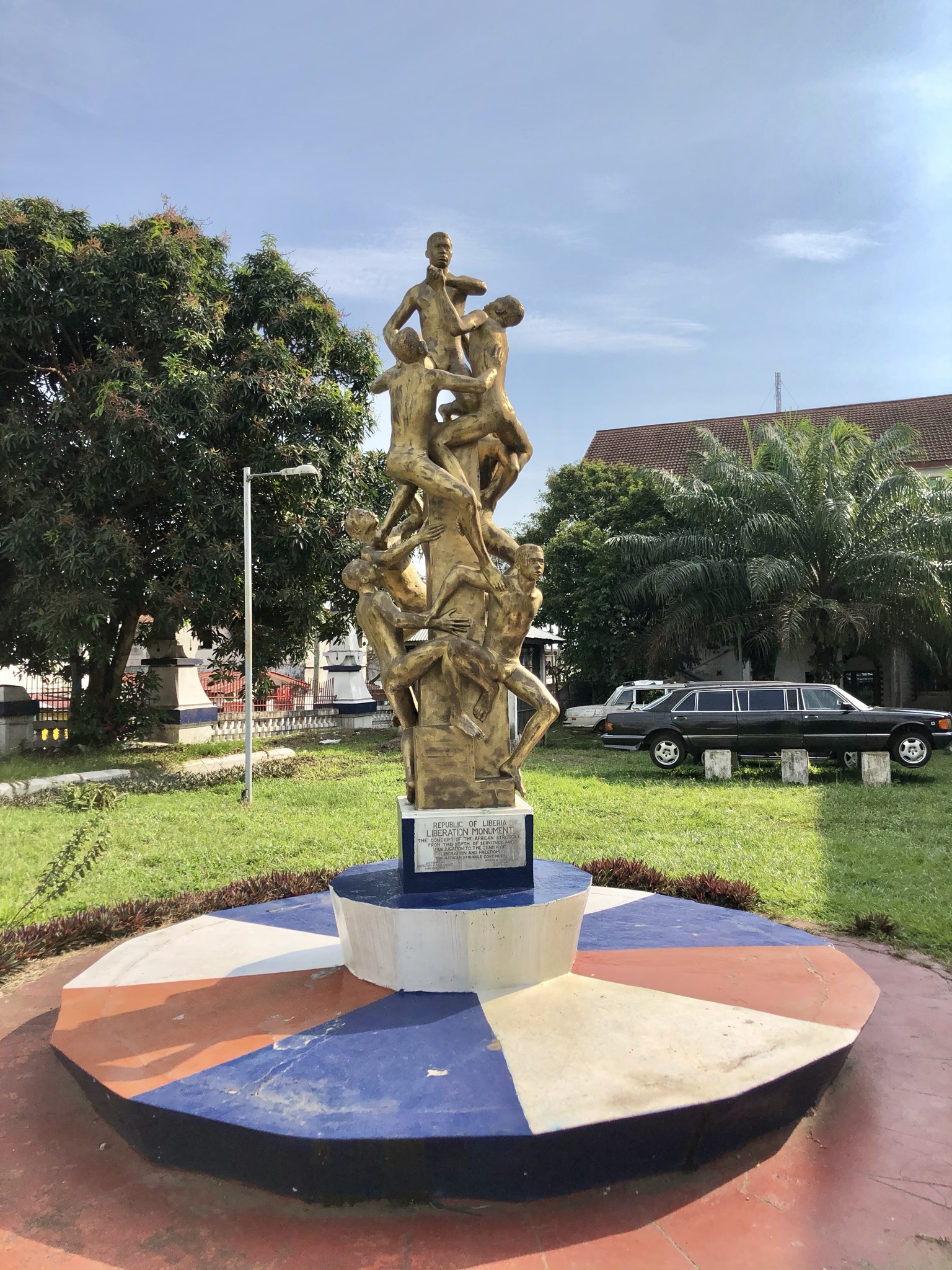
Wrappin’ it up
I got to see some more cool stuff on my way back to the hotel. It was Sunday afternoon and the people were out! I loved seeing all of the old buildings, including the giant Trinity Cathedral and the old Rivoli Cinema, which is sadly shuttered and rotting. Another building–that I didn’t take a photo of–I’ll have to describe to you: a pretty big high rise that looked totally abandoned – all the windows were blown out. I figured it was just a giant, vacant shell of a building, until I passed by the front entrance. As I peered in, I saw a manned desk inside, on the back of the wall – with one light hanging overhead and a sign behind on the wall that said “POLICE.” Looked like the local police had commandeered this disaster of an old building and made it into their precinct and I thought that was just one of the wildest things I’d ever seen. I wanted to stop and stare a little, but I thought it was probably smart to keep moving. But wow!
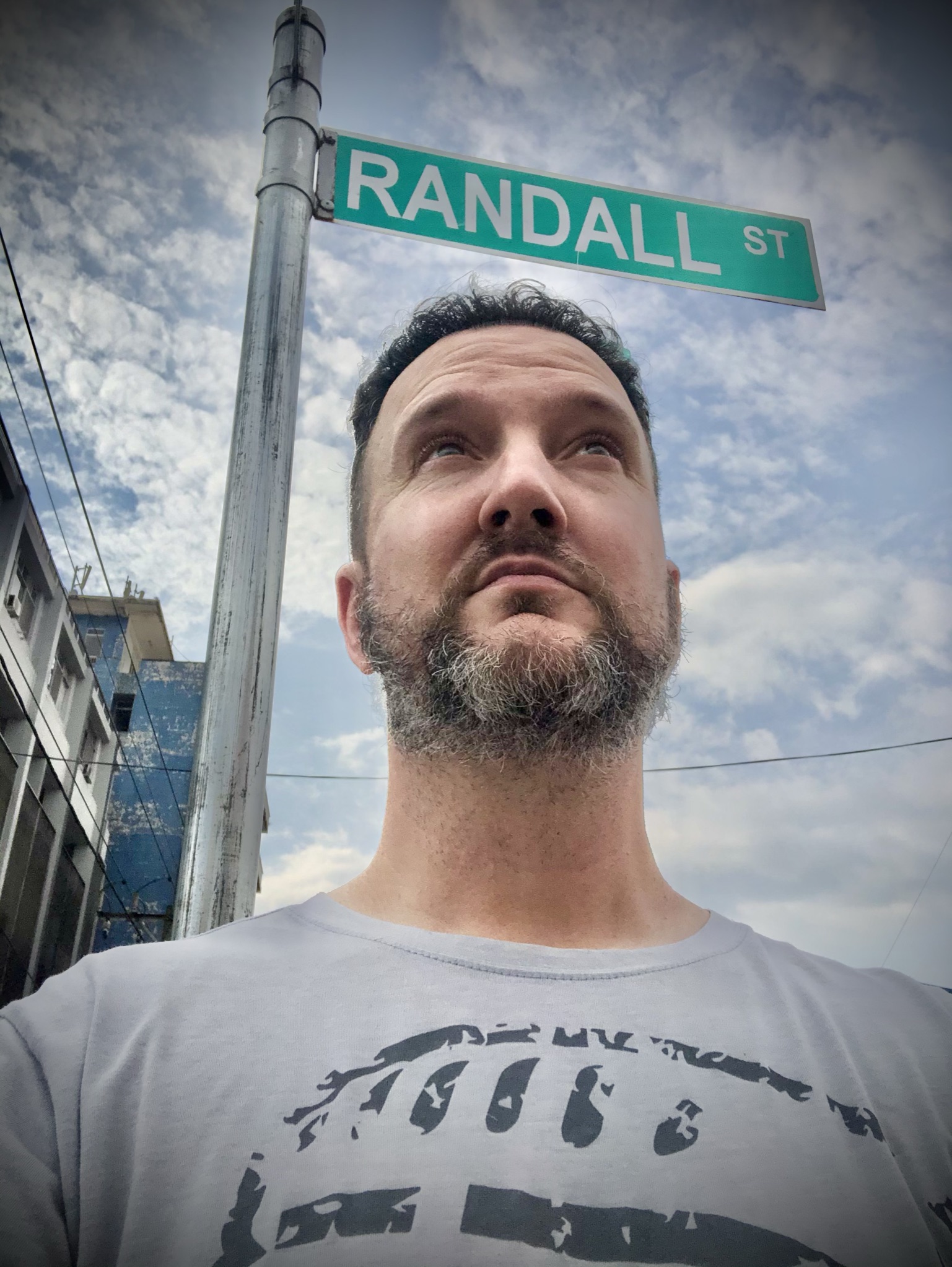
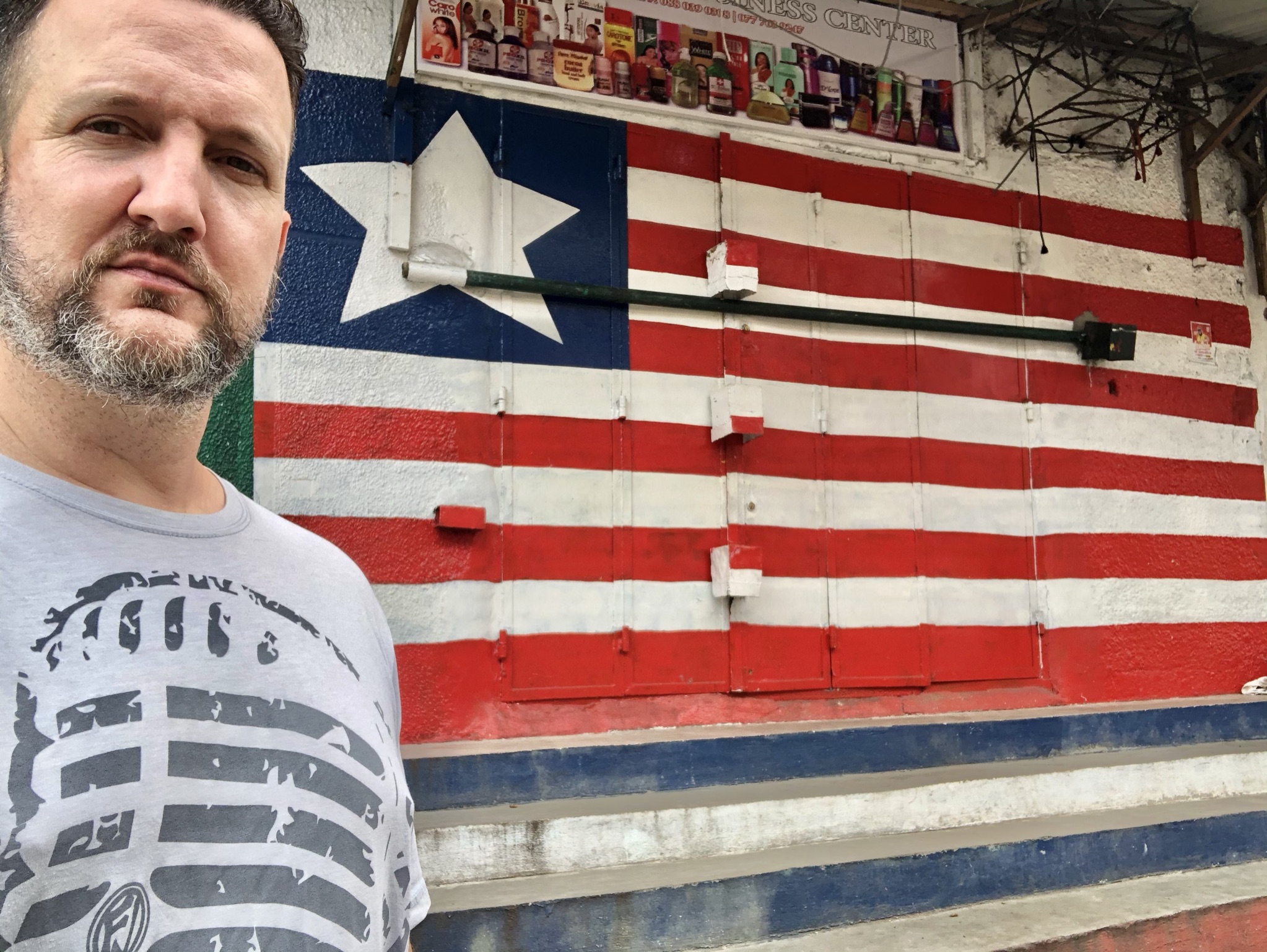
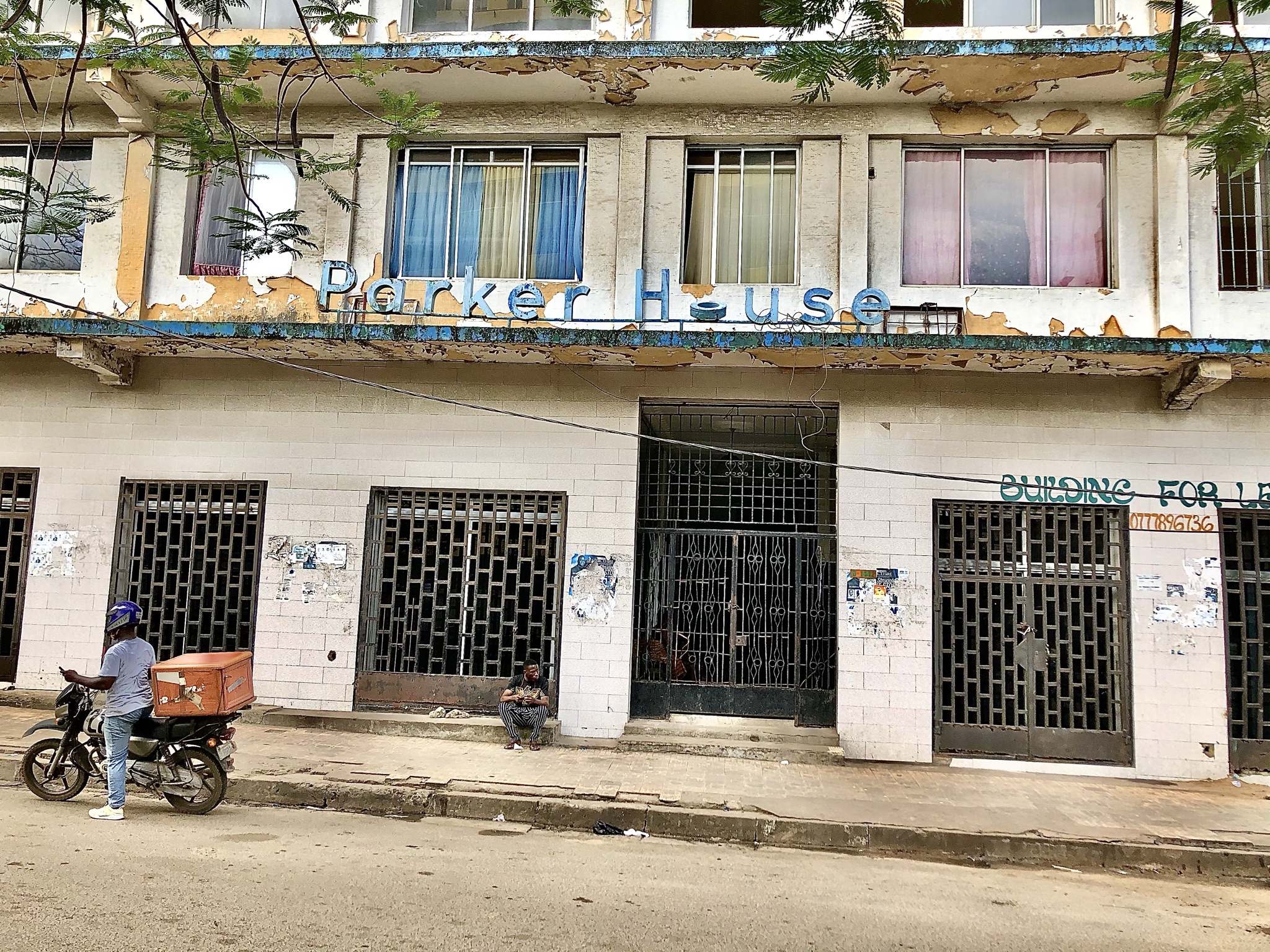
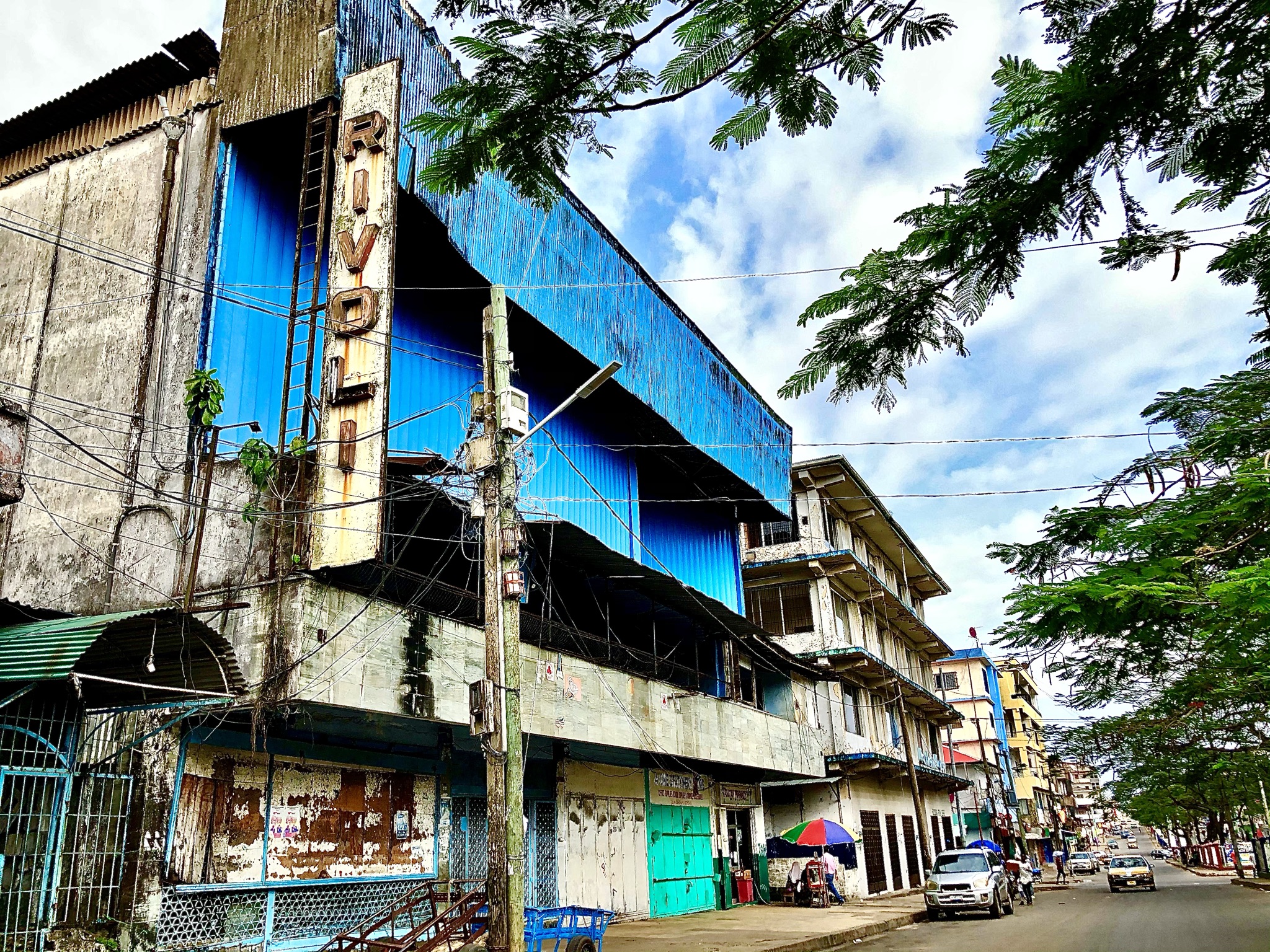
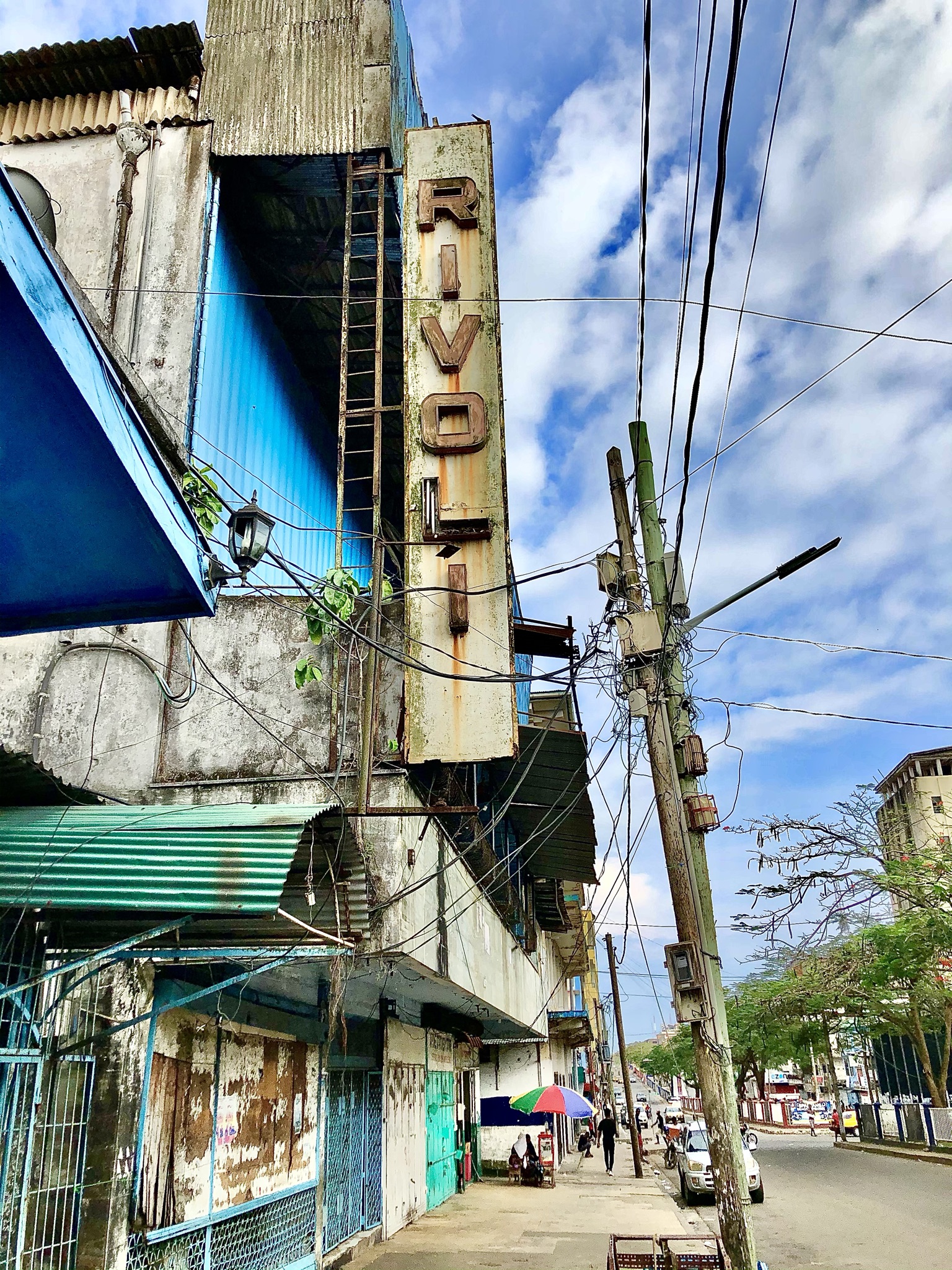
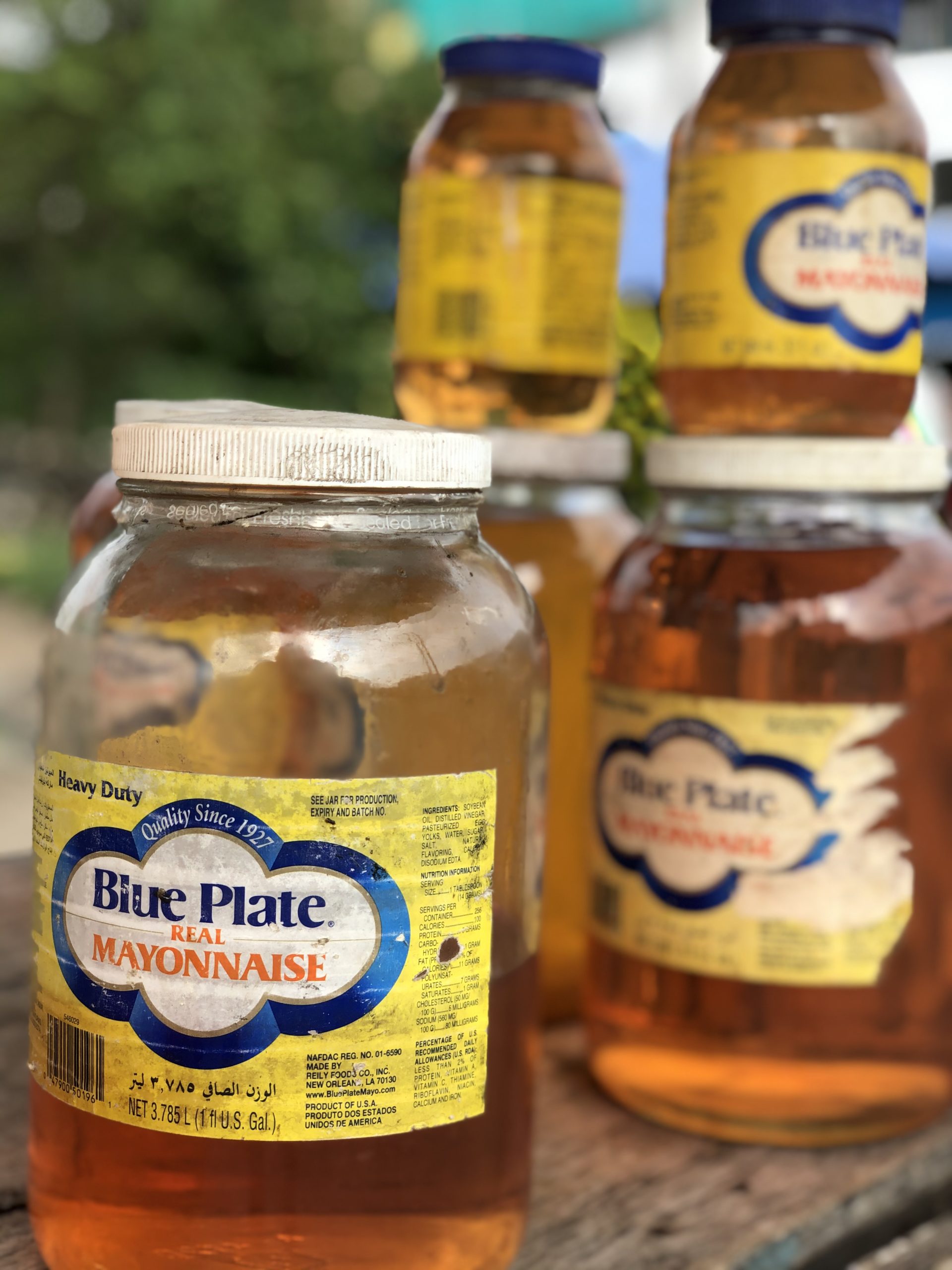
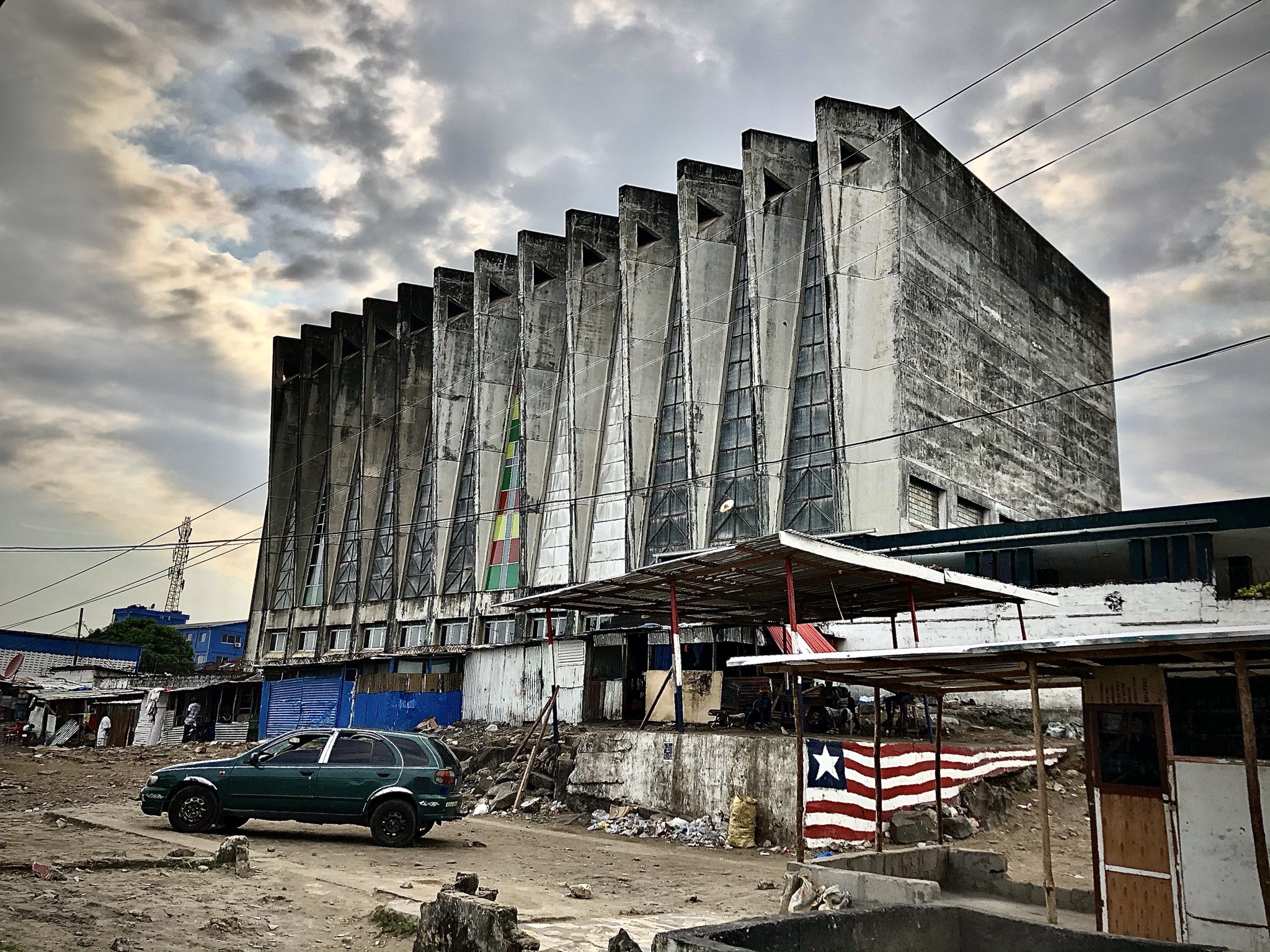
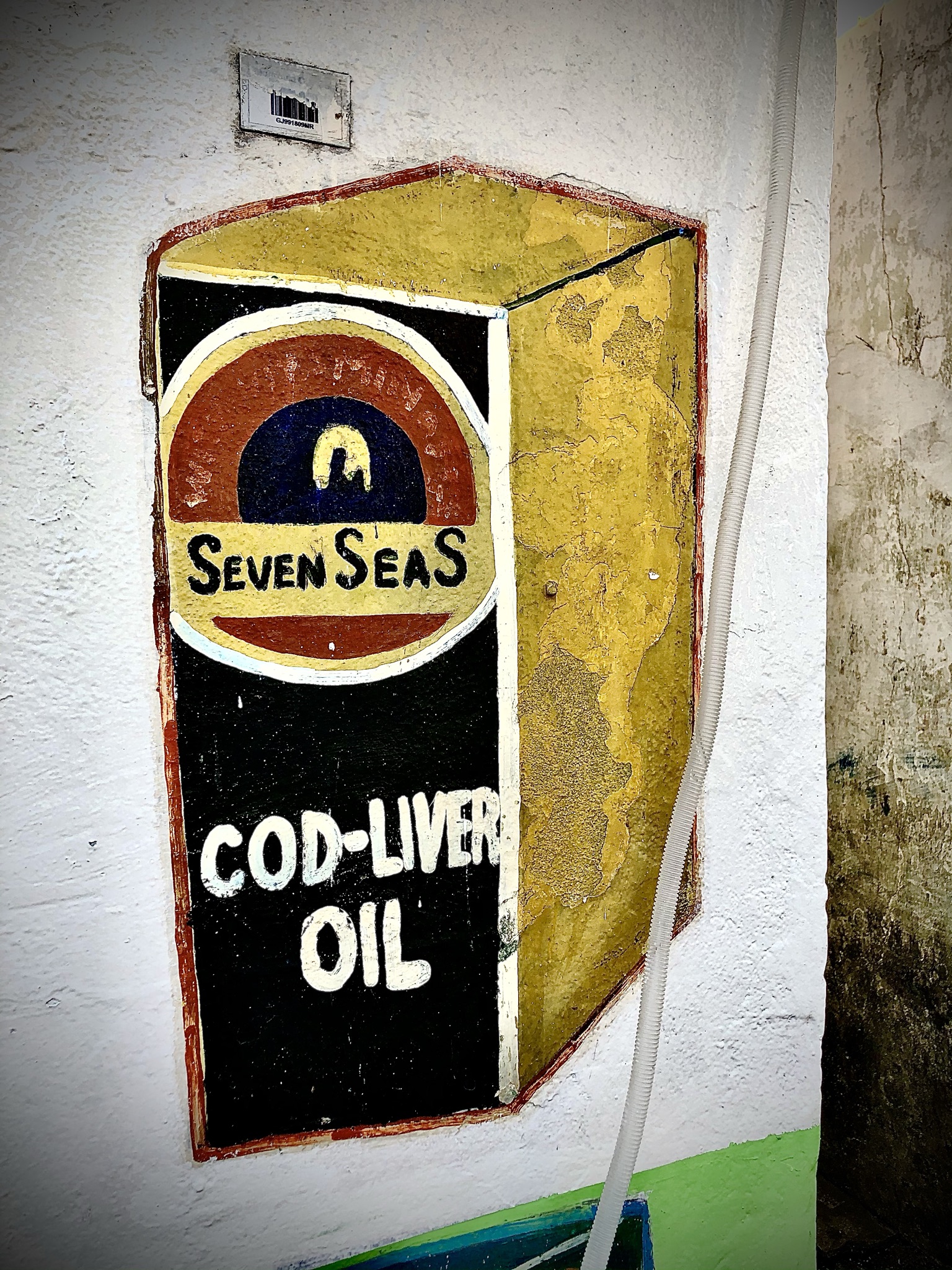
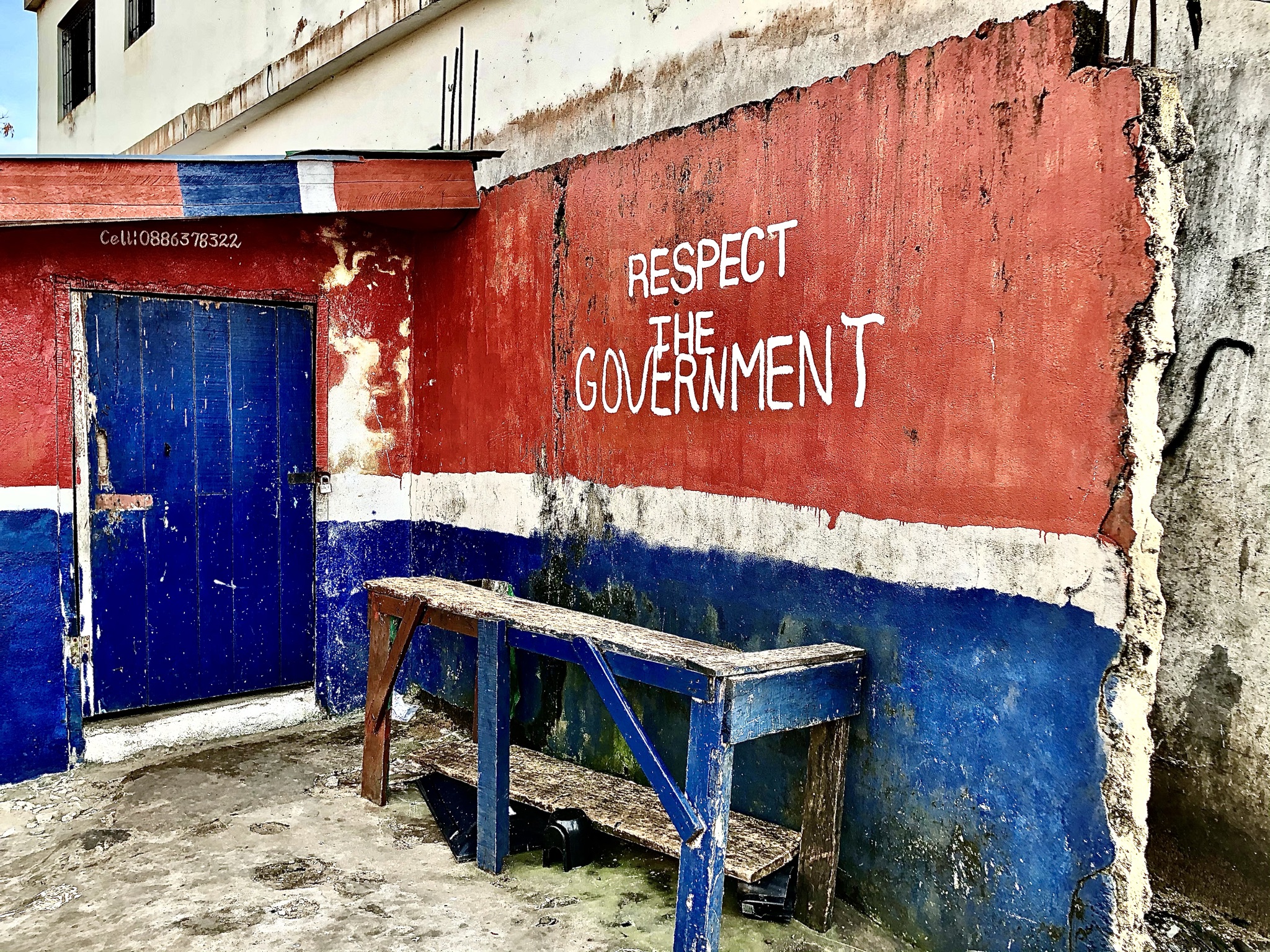
Later Liberia!
I’m just amazed that after visiting 38 countries in Africa, I can still be surprised; still be charmed by new sights and new people, with different attitudes and vibes. Even though I’m no stranger to West Africa–I’ve now seen most of it–I love that I can come to a country like Liberia and still be wowed. Though it’s the sixth poorest country in the world–and you can feel it–I left with nothing but fond memories of Liberia. Who knows, maybe I’ll be back. Can’t wait to take a dip when they finally finished the pool at The Ducor Hotel. Heard it’s going to have a swim-up bar!
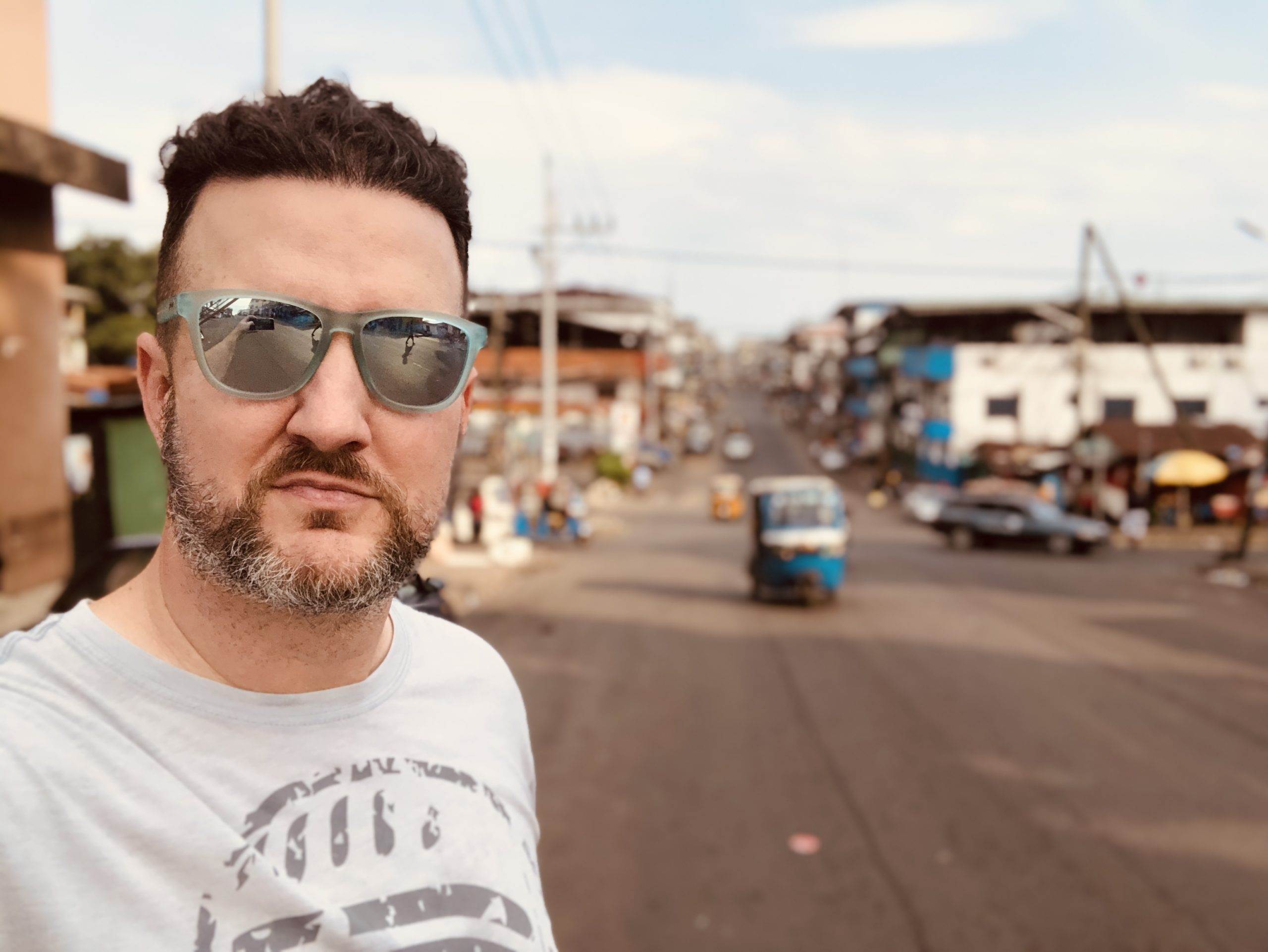
This entry was posted in Africa

